National responses to the COVID-19 pandemic
National responses to the COVID-19 pandemic have been varied, and have included containment measures such as lockdowns, quarantines, and curfews. As of 27 June 2020, more than 9.76 million cases of COVID-19 have been reported in more than 188 countries and territories, resulting in more than 492,000 deaths. More than 4.91 million people have recovered from the virus.[1] The most affected countries in terms of confirmed cases are the United States, Spain, Italy, France, Germany, the United Kingdom, Turkey and China.[2][3]
| Part of a series on the |
| COVID-19 pandemic |
|---|
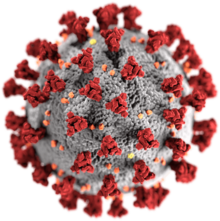 |
|
|
|
International response |
|
Medical response |
|
|
|

Lockdowns
COVID-19 pandemic lockdowns | ||||
|---|---|---|---|---|
| Countries and territories | Place | Start date | End date | Level |
| 2020-03-13[4] | 2020-06-01[5] | National | ||
| 2020-03-23[6] | 2020-05-14[7] | City | ||
| 2020-03-19[8] | 2020-06-28[9] | National | ||
| 2020-03-24[10] | 2020-05-04[11] | |||
| 2020-03-23[12] | ||||
| 2020-03-16[13] | 2020-04-13[14] | |||
| 2020-03-31[15] | 2020-04-20[15] | |||
| 2020-03-26[16] | 2020-05-16[17] | |||
| 2020-03-28[18] | 2020-05-03[18] | |||
| 2020-03-18[19] | 2020-05-04 [20] | |||
| 2020-04-04[21] | 2020-05-02[22] | |||
| 2020-03-22[23] | 2020-06-30[24] | |||
| 2020-04-02[25] | 2020-04-30[25] | |||
| Santa Catarina | 2020-03-17[26] | 2020-04-07[26] | State | |
| São Paulo | 2020-03-24[27] | 2020-05-10[28] | ||
| 2020-03-25[29] | 2020-06-30[30] | National | ||
| 2020-03-31[31] | 2020-04-20[31] | |||
| 2020-03-23[32] | ||||
| 2020-03-18[33] | 2020-04-19[34] | |||
| 2020-03-16[13] | 2020-04-12[35] | |||
| 2020-03-16[36] | 2020-03-31[36] | |||
| 2020-03-12[37] | 2020-04-02[37] | |||
| 2020-04-02[38] | 2020-04-23[38] | |||
| Lautoka | 2020-03-20[39] | 2020-04-07[40] | City | |
| Suva | 2020-04-03[41] | 2020-04-17[42] | ||
| Uusimaa | 2020-03-27[43] | 2020-04-16[43] | Region | |
| 2020-03-17[44] | 2020-05-11[45] | National | ||
| 2020-03-31[46] | 2020-04-21[46] | |||
| 2020-03-23[lower-alpha 1][48] | 2020-04-20[49] to 2020-05-10[50] | |||
| Accra | 2020-03-30[51] | 2020-04-12[52] | Metropolitan Area | |
| Kumasi | ||||
| 2020-03-23[53] | 2020-05-04[54] | National | ||
| 2020-03-25[55] | ||||
| 2020-03-20[56] | 2020-05-17[57] | |||
| 2020-03-28[58] | 2020-04-10[58] | |||
| 2020-03-25[59] | 2020-06-30[60] | |||
| 2020-03-14[61] | 2020-04-20[62] | |||
| 2020-03-22[63] | 2020-04-11[64] | |||
| 2020-03-12[65] | 2020-05-18[66] | |||
| Bnei Brak | 2020-04-02[67] | City | ||
| 2020-03-09[lower-alpha 2][68] | 2020-05-18[69] | National | ||
| Saint Catherine | 2020-04-15[70] | 2020-04-22[70] | Parish | |
| 2020-03-18[71] | 2020-04-30[72] | National | ||
| 2020-03-14[73] | 2020-05-04 [74] | |||
| 2020-03-14[75] | 2020-03-29[75] | |||
| 2020-03-15[76] | 2020-03-28[76] | |||
| Margibi | 2020-03-23[77] | 2020-04-11[77] | County | |
| Montserrado | ||||
| 2020-03-22[78] | National | |||
| 2020-03-16[79] | 2020-06-18[80] | |||
| Antananarivo | 2020-03-23[81] | 2020-04-20[82] | City | |
| Toamasina | ||||
| 2020-03-18[83] | 2020-06-09[84] | National | ||
| 2020-03-23[85] | 2020-06-01[85] | |||
| 2020-03-10[86] | 2020-03-16[86] | |||
| Tuzi | 2020-03-24[87] | Municipality | ||
| 2020-03-19[88] | 2020-06-10[89] | National | ||
| 2020-03-27[lower-alpha 3][90] | 2020-05-04[91] | |||
| 2020-03-24[92] | 2020-06-14[93] | |||
| 2020-03-26[94] | 2020-05-14[95] | |||
| Abuja | 2020-03-30[96] | 2020-04-12[96] | City | |
| Lagos | ||||
| Ogun | State | |||
| 2020-03-30[97] | National | |||
| Muscat | 2020-04-10[98] | 2020-05-29[99] | Governorate | |
| Jalan Bani Bu Ali | 2020-04-16[100] | TBD[100] | Province | |
| 2020-03-24[101] | 2020-05-09[102] | National | ||
| 2020-03-25[103] | ||||
| 2020-03-24[104] | 2020-04-07[104] | |||
| 2020-03-20[105] | 2020-05-03[106] | |||
| 2020-03-16[107] | 2020-06-30[108] | |||
| Cebu | 2020-03-27[109] | 2020-05-15[lower-alpha 4][110] to 2020-05-31[lower-alpha 5][111] |
Province | |
| Davao Region | 2020-03-19[112] | 2020-05-15[110] | Region | |
| Luzon | 2020-03-15[lower-alpha 6][113] | 2020-04-30[lower-alpha 7][114] to 2020-05-15[lower-alpha 8][115] to 2020-05-31[lower-alpha 5][111] |
Island group | |
| Soccsksargen | 2020-03-23[112] | 2020-05-15[116] | Region | |
| 2020-03-13[117] | 2020-04-11[118] | National | ||
| 2020-03-19[119] | 2020-04-02[118] | |||
| Doha Industrial Area | 2020-03-11[120] | Industrial park | ||
| 2020-03-25[121] | 2020-05-12[122] | National | ||
| Moscow | 2020-03-30[123] | 2020-05-12[124][125] | Metropolitan area | |
| Rest of the country[lower-alpha 9] | 2020-03-28[126] | 2020-04-30[126] | National | |
| 2020-03-21[127] | 2020-04-19[128] | |||
| 2020-03-26[129] | 2020-04-08[130] | |||
| 2020-03-14[131] | 2020-05-05[132] | |||
| Jeddah | 2020-03-29[133] | City | ||
| Mecca | 2020-03-26[133] | |||
| Medina | ||||
| Qatif | 2020-03-09[134] | Area | ||
| Riyadh | 2020-03-26[133] | City | ||
| 2020-03-15[118] | 2020-04-21[135] to 2020-05-04[136] |
National | ||
| 2020-04-07[137] | 2020-06-01[138] | |||
| 2020-03-26[139] | 2020-04-30[140] | |||
| 2020-03-14[141] | 2020-05-09[142] | |||
| 2020-03-18[143] | 2020-05-26[144] | |||
| 2020-03-25[145] | 2020-05-31[146] | |||
| 2020-03-17[147] | 2020-03-31[147] | |||
| 2020-03-22[148] | 2020-04-19[149] | |||
| 2020-04-23[150] | 2020-04-27[150] | Only in 30 metropolitan cities and Zonguldak. | ||
| 2020-03-17[118] | 2020-04-24[118] | National | ||
| 2020-03-26[151] | 2020-04-17[152] | |||
| 2020-03-23[153] | ||||
| California | 2020-03-19[154] | State | ||
| Clark County in Nevada | 2020-03-20 | County | ||
| Connecticut | 2020-03-23[155] | 2020-04-22[156] | State | |
| Illinois | 2020-03-21[157] | 2020-05-30[158] | ||
| Kansas City in Kansas | 2020-03-24[159] | 2020-04-19[160] | City | |
| Massachusetts | 2020-03-24[161] | 2020-05-04[161] | State | |
| Michigan | 2020-03-24[162] | 2020-04-13[156] | ||
| New York | 2020-03-22[163] | 2020-06-13[164] | ||
| Oregon | 2020-03-24[165] | |||
| Wisconsin | 2020-03-24[166] | |||
| 2020-03-17[167] | 2020-05-13[168] | National | ||
| 2020-04-01[169] | 2020-04-22[170] | |||
| 2020-03-30[171] | 2020-05-02[172] | |||
| Outbreak ongoing: Lockdown data as of June 27, 2020
Notes
| ||||
The pandemic has caused worldwide curfews and similar restrictions (stay-at-home orders, shelter-in-place orders, shutdowns/lockdowns) established to prevent further spread of COVID-19. The pandemic has resulted in the largest amount of shutdowns/lockdowns worldwide at the same time in history. By 26 March, 1.7 billion people worldwide were under some form of lockdown,[173] which increased to 3.9 billion people by the first week of April — more than half of the world's population.[174][175]
As of 12 April, nearly 300 million people, or about 90 per cent of the population, are under some form of lockdown in the United States,[176] more than 50 million people are in lockdown in the Philippines,[177] about 59 million people are in lockdown in South Africa,[178] and 1.3 billion people are in lockdown in India.[179][180]
Africa
South Africa

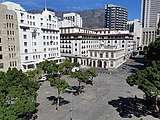
President Cyril Ramaphosa declared that South Africa would undergo a national lockdown, for a period of 21 days, from 26 March to 16 April 2020. This drastic measure was intended to help keep the viral infection rate as low as possible and save lives.[181] On Thursday 9 April, President Ramaphosa announced an extension of two weeks to the lockdown, until the end of April.[182]
Other countries and territories

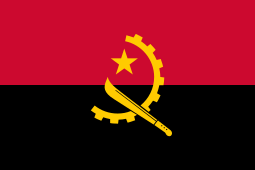
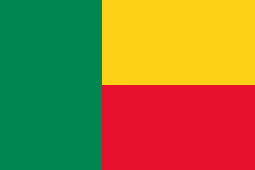
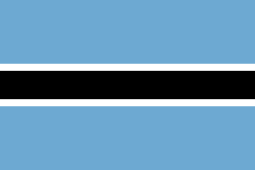
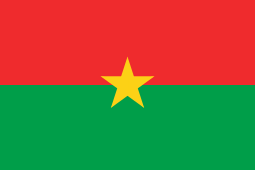
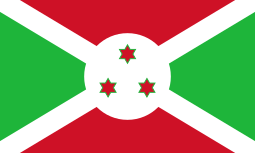
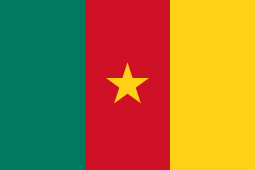
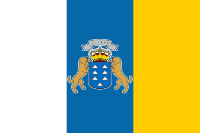
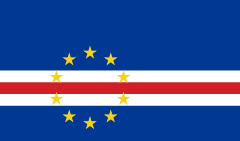
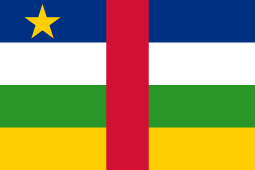
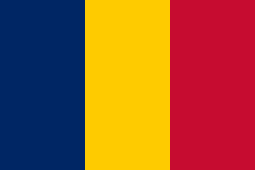
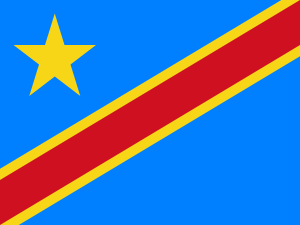
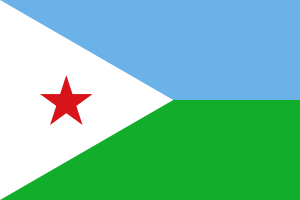

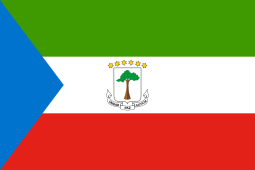
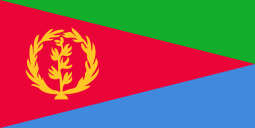
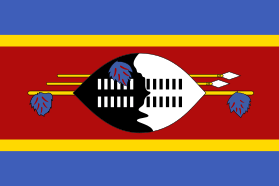
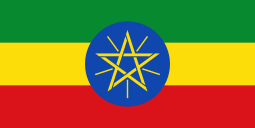
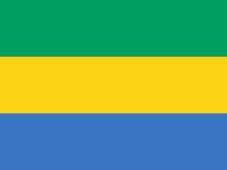
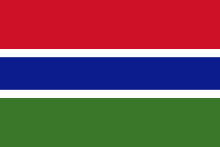

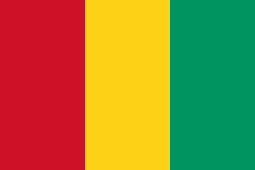
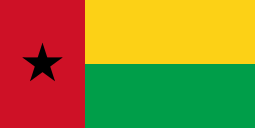
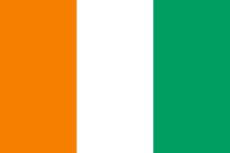

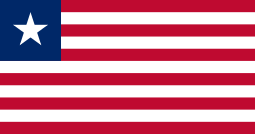
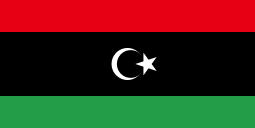
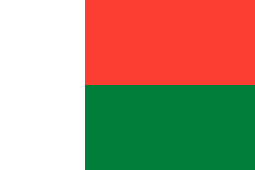
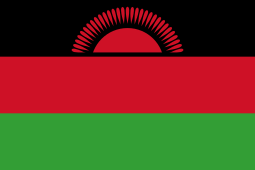
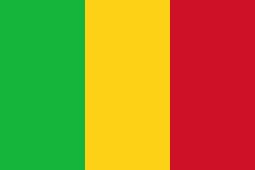
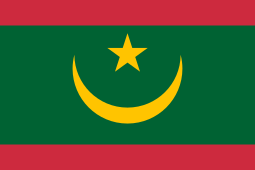
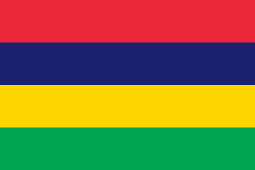
.svg.png)

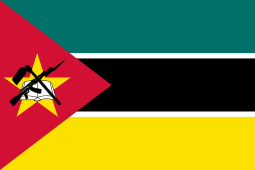
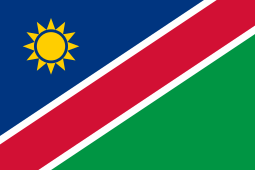
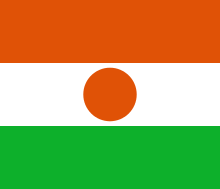

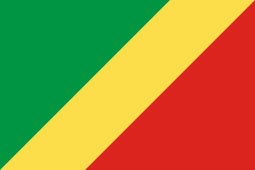
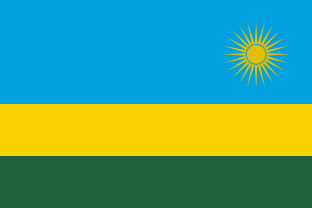
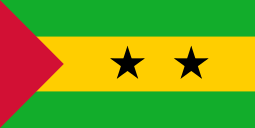
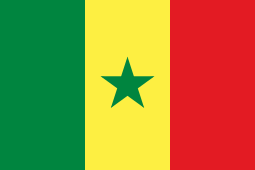
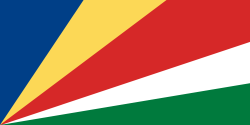
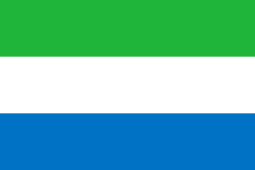
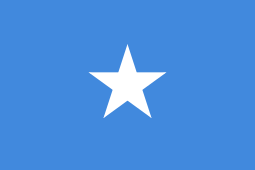
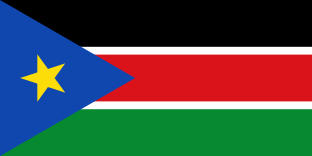
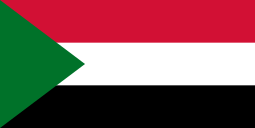
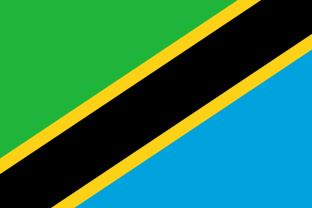
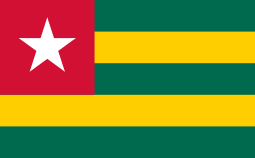


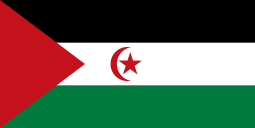
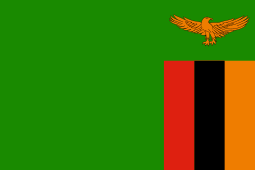
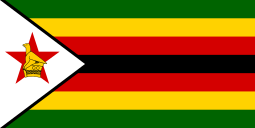
Asia
China
_(cropped).jpg)
The first person known to have fallen ill due to the new virus was in Wuhan on 1 December 2019.[183] A public notice on the outbreak was released by Wuhan health authority on 31 December; the initial notice informed Wuhan residents that there was no clear evidence of human-to-human transmission of the virus, that the disease is preventable and controllable, and that people can wear masks when going out.[184] WHO was informed of the outbreak on the same day.[185] On 7 January 2020, the Chinese Communist Party Politburo Standing Committee discussed novel coronavirus prevention and control.[186][187]
The Wuhan government, which announced a number of new measures such as cancelling the Chinese New Year celebrations, in addition to measures such as checking the temperature of passengers at transport terminals first introduced on 14 January.[188] A quarantine was announced on 23 January 2020 stopping travel in and out of Wuhan.[189] A group tasked with the prevention and control of the COVID-19 pandemic was established on 26 January, led by Chinese Premier Li Keqiang.[190][191] The leading group decided to extend the Spring Festival holiday to contain the outbreak.[192]
China Customs started requiring that all passengers entering and exiting China fill in an extra health declaration form from 26 January. The health declaration form was mentioned in China's Frontier Health and Quarantine Law, granting the customs rights to require it if needed.[193][194][195] On 27 January, the General Office of the State Council of China, declared a nation-wide extension on the New Year holiday and the postponement of the coming spring semester. The office extended the previously scheduled public holiday from 30 January, to 2 February, while it said school openings for the spring semester would be announced in the future.[196]
Hong Kong's Chief Executive Carrie Lam declared an emergency at a press conference on 25 January, saying the government would close primary and secondary schools for two more weeks on top of the previously scheduled New Year holiday, pushing the date for school reopening to 17 February.[197][198] Macau closed several museums and libraries, and prolonged the New Year holiday break to 11 February for higher education institutions and 10 February for others.[199]

On 1 February 2020, Xinhua News reported that China's Supreme People's Procuratorate (SPP) had "asked procuratorates nationwide to fully play their role to create a favourable judicial environment in the fight against the novel coronavirus pandemic." This included severe punishments for those found guilty of dereliction of duty and the withholding of information for officials. Tougher charges were proscribed for commercial criminal activities such as increasing prices, profiteering along with the "production and sale of fake and shoddy protective equipment and medicines." Prosecuting actions against patients who deliberately spread the infection or refuse examination or compulsory isolation along with threats of violence against medical personnel were also urged. The statement also included urging to prosecute those found fabricating and spreading coronavirus-related information and also stressed "harshly punishing the illegal hunting of wildlife under state protection, as well as improving inspection and quarantine measures for fresh food and meat products."[200]
Quarantine
On 23 January 2020, a quarantine on travel in and out of Wuhan was imposed in an effort to stop the spread of the virus out of Wuhan. Flights, trains, public buses, the metro system, and long-distance coaches were suspended indefinitely. Large-scale gatherings and group tours were also suspended.[189] By 24 January 2020, a total of 15 cities in Hubei, including Wuhan, were placed under similar quarantine measures.[201]
Before the quarantine began, some in Wuhan questioned the reliability of the figures from the Chinese government as well as the government response, with some calling for quarantine,[202] and a post also showed sick people and three dead bodies covered in white sheets on the floor of a hospital on 24 January, although many such posts in Weibo about the epidemic have since been deleted.[203][204] Due to quarantine measures, Wuhan residents rushed to stockpile essential goods, food, and fuel; prices rose significantly.[205][206] 5,000,000 people left Wuhan, with 9,000,000 left in the city.[207] The city of Shantou in Guangdong declared a partial lockdown on 26 January,[208] though this was reversed two hours later.[209] Local authorities in Beijing and several other major cities, including Hangzhou, Guangzhou, Shanghai, and Shenzhen, announced on the same day that these cities will not impose a lockdown similar to those in Hubei province.[210]
By 6 February 2020, a total of four Zhejiang cities—Wenzhou, Hangzhou, Ningbo, and Taizhou—were under the "passport" system, allowing only one person per household to leave their home every two days. These restrictions apply to over 30 million people.[211]
 People queueing outside a Wuhan pharmacy to buy face masks and medical supplies
People queueing outside a Wuhan pharmacy to buy face masks and medical supplies Residents of Wuhan wearing masks rushed out to nearby markets to buy vegetables and other food on 23 January during the outbreak
Residents of Wuhan wearing masks rushed out to nearby markets to buy vegetables and other food on 23 January during the outbreak Residents of Wuhan waiting for the last train of the city's metro on 10 am, 22 January
Residents of Wuhan waiting for the last train of the city's metro on 10 am, 22 January
Speciality hospitals

A speciality hospital named Huoshenshan Hospital has been constructed as a countermeasure against the outbreak and to better quarantine the patients. Wuhan City government had demanded that a state-owned enterprise construct such a hospital "at the fastest speed" comparable to that of the SARS outbreak in 2003.[212] Upon opening, the speciality hospital had 1,000 beds[213] and took up 30,000 square metres. The hospital is modelled after the Xiaotangshan Hospital, which was fabricated for the SARS outbreak of 2003, itself built in only seven days.[214][215]
On 24 January 2020, the authority announced that they would convert an empty building in Huangzhou District, Huanggang to a 1,000-bed hospital named Dabie Mountain Regional Medical Centre. Works began the next day by 500 personnel and the building began accepting patients on 28 January 2020 at 10:30 pm.[216] In Wuhan, authorities seized dormitories, offices and hospitals to create more beds for patients.[217] On 25 January authorities announced plans for Leishenshan Hospital, a second speciality hospital, with a capacity of 1,600 beds;[218] operations are scheduled to start by 6 February.[219][220] The hospital opened on 8 February.[221]
By 16 February 2020, 217 teams of a total of 25,633 medical workers from across China went to Wuhan and other cities in Hubei to help open up more facilities and treat patients.[222] A total of 14 temporary hospitals were constructed in China in total, but all were reported to have closed after the crisis was determined be under control on 10 March 2020.[223]
Censorship and police responses
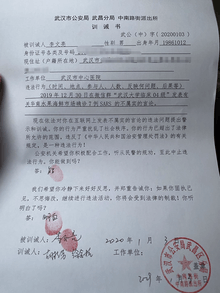
The early response by city authorities was criticised as prioritising a control of information that might be unfavorable for local officials over public safety, and China was also criticised for cover-ups and downplaying the initial discovery and severity of the outbreak. By the time China had informed the WHO of the new coronavirus on 31 December 2019, The New York Times reported that the government was still keeping "its own citizens in the dark".[224][225] Observers have attributed this to the censorship institutional structure of the country's press and Internet, exacerbated by China's paramount leader Xi Jinping's crackdown on independent oversight such as journalism and social media that left senior officials with inaccurate information on the outbreak and "contributed to a prolonged period of inaction that allowed the virus to spread".[224][225][226][227]
A group of eight medical personnel, including Li Wenliang, an ophthalmologist from Wuhan Central Hospital who in late December posted warnings on a new coronavirus strain akin to SARS, were taken into custody by Wuhan police and threatened with prosecution for "spreading rumours" for likening it to SARS.[228][229] Li Wenliang later died of the disease on 7 February, and was widely hailed as a whistleblower in China, but some of the trending hashtags on Weibo such as "Wuhan government owes Dr Li Wenliang an apology" and "We want freedom of speech" were blocked.[230][231][232] His death widespread public anger in the aftermath, in what has been described as "one of the biggest outpourings of online criticism of the government in years," was not a topic that was permitted for coverage.[233]
On 20 January, Chinese Communist Party General Secretary Xi Jinping made his first public remark on the outbreak and spoke of "the need for the timely release of information".[234] One day later, the CPC Central Political and Legal Affairs Commission, the most powerful political organ in China overseeing legal enforcement and the police, wrote "self-deception will only make the epidemic worse and turn a natural disaster that was controllable into a man-made disaster at great cost," and "only openness can minimise panic to the greatest extent." The commission then added, "anyone who deliberately delays and hides the reporting of cases out of self-interest will be nailed on a pillar of shame for eternity."[235][236] Xi Jinping later also instructed authorities "to strengthen the guidance of public opinions", language which some viewed as a call for censorship after social media users became increasingly critical and angry at the government.[237] On 30 January, China's Supreme Court, delivered a rare rebuke against the country's police forces, calling the "unreasonably harsh crackdown on online rumours" as undermining public trust.[238]
As part of the central government's "bifurcated approach to diffuse discontent", citizens were permitted to criticise local officials so long as they did not "question the basic legitimacy of the party".[239] The Cyberspace Administration (CAC) declared its intent to foster a "good online atmosphere," with CAC notices sent to video platforms encouraging them to "not to push any negative story, and not to conduct non-official livestreaming on the virus."[240] Censorship has been observed being applied on news articles and social media posts deemed to hold negative tones about COVID-19 and the governmental response, including posts mocking Xi Jinping for not visiting areas of the epidemic,[241] an article that predicted negative effects of the epidemic on the economy, and calls to remove local government officials.[227][230][242][243] While censorship had been briefly relaxed giving a "window of about two weeks in which Chinese journalists were able to publish hard-hitting stories exposing the mishandling of the novel coronavirus by officials", since then private news outlets were reportedly required to use "planned and controlled publicity" with the authorities' consent.[230][244]
Approval of Chinese responses
.jpg)
China's response to the virus, in comparison to the 2003 SARS outbreak, has been praised by some foreign leaders.[245] U.S. President Trump thanked Chinese leader Xi Jinping "on behalf of the American People" on 24 January on Twitter, stating that "China has been working very hard to contain the Coronavirus. The United States greatly appreciates their efforts and transparency" and declaring that "It will all work out well."[246] Germany's health minister Jens Spahn, in an interview on Bloomberg TV, said with comparison to the Chinese response to SARS in 2003: "There's a big difference to SARS. We have a much more transparent China. The action of China is much more effective in the first days already." He also praised the international co-operation and communication in dealing with the virus.[247][248] In a letter to Xi, Singaporean president Halimah Yacob applauded China's "swift, decisive and comprehensive measures" in safeguarding the health of the Chinese people, while prime minister Lee Hsien Loong remarked of "China's firm and decisive response" in communities affected by the virus.[249] Similar sentiments were expressed by Russian president Vladimir Putin.[250]
At a Sunday mass at St. Peter's Square in Vatican City on 26 January, Pope Francis praised "the great commitment by the Chinese community that has already been put in place to combat the epidemic" and commenced a closing prayer for "the people who are sick because of the virus that has spread through China".[251]
India
The Indian government airlifted 324 of its citizens from China on 31 January and 1 February via Air India special chartered flights.[252] After Pakistan's refusal to evacuate its students from Wuhan, the Indian government offered to support them with evacuation along with citizens of other neighbouring countries.[253] On 17 February, India announced a special C-17 Globemaster flight carrying medical supplies to support China in Wuhan and evacuating citizens of India and neighbouring countries. India eventually evacuated 647 people including citizens of Maldives and Bangladesh.[254]
On 15 March, after a video conference of SAARC leaders, PM Narendra Modi allocated ₹74 crore (US$10 million) of funds classified as COVID-19 Emergency Fund for the SAARC countries.[255]
As a precautionary measure, India closed all of its international land borders on 16 March.[256][257] On 22 March, India locked down places where cases had been confirmed—82 districts in 22 states and Union Territories—until 31 March,[258] although essential services and commodities were to continue.[259][260] 80 cities including major cities such as Bengaluru, Chennai, Delhi, Mumbai, Kolkata, Nagpur, Varanasi and Raipur were also put under lockdown.[261][262]
On 24 March, the government announced a nationwide lockdown to be in effect for 21 days from 25 March until 14 April.[263] This lockdown included Indian Railways, the biggest employer in India; it was the first shutdown of the trains in 167 years.[264]
Indonesia
Many Indonesians criticised the government for a slow response and downplaying the pandemic. WHO, Australian government, and United States embassy in Indonesia have expressed their doubts about the Indonesian government's response to the pandemic.[265]
The governor of West Sumatra province, Irwan Prayitno faced backlash for accepting 174 tourists from China to the province. 174 Chinese tourists from Kunming arrived at Minangkabau International Airport at Padang Pariaman Regency as Citilink adds Padang - Kunming route. Prayitno received further backlash after welcoming the group of tourists himself at the airport and giving them a "grand welcome" with a cultural parade. The move angered local residents who demanded the governor return the group to China.[266][267]
Health experts are concerned that the country is failing to identify the transmission of the virus.[268] Marc Lipsitch, professor of epidemiology at the Harvard T. H. Chan School of Public Health, "analysed air traffic out of the Chinese city at the centre of the outbreak in China and suggested in a report ... that Indonesia might have missed cases" of coronavirus.[269][270][271] Western diplomats[272][273][274] as well as local[268][275] and international[276][277][278] news outlets postulated that the lack of cases within Indonesia result from inadequate testing and under reporting, as opposed to sheer luck and divine intervention.[279][280]
The government faced a backlash after instead pledging to set aside IDR 72 billion ($5m) to pay for social media influencers to attract tourists to Indonesia.[281]
Indonesian president Joko Widodo has been criticised by the Indonesian Chamber of Commerce and Industry,[282] human rights groups,[283] and by political parties including Golkar and Partai Keadilan Sejahtera[284][285] for a lack of transparency regarding the information on COVID-19. Widodo has insisted not to share with the travel history details of patients tested positive with coronavirus in an attempt to reduce panic and uneasiness in the general public.[286]
Iran
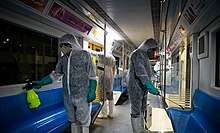
Iran reported its first confirmed cases of SARS-CoV-2 infections on 19 February 2020 in Qom, where according to the Ministry of Health and Medical Education, both had died later that day.[287][288]
Early measures announced by the government included the cancellation of concerts and other cultural events,[289] sporting events,[290] and Friday prayers,[291] closure of universities, higher education institutions and schools,[292] and allocated 5 trillion rials to combat the virus.[293] President Hassan Rouhani said on 26 February 2020 that there were no plans to quarantine areas affected by the outbreak, and only individuals would be quarantined.[294] However, Shia shrines in Qom remained open to pilgrims.[295]
Iran became a center of the spread of the virus after China.[296][297] Amidst claims of a cover-up of the extent of the outbreak in the country,[298] over ten countries have traced their cases back to Iran, indicating that the extent of the outbreak may be more severe than that admitted by the Iranian government.[297][299] The Iranian Parliament was shut down, with 23 of the 290 members of parliament reported to have had tested positive for the virus on 3 March.[300] A number of senior government officials as well as two members of parliament have died from the disease.[301]
Criticism against Iranian government's responses

Iranians criticized government authorities for proceeding with elections while the disease was spreading and closing secular spaces while keeping shrines open, especially in the Shia holy city of Qom.[302] Asif Shuja of the National University of Singapore's Middle East Institute suggested that "the fact that Iran reported deaths on the same day as its first infections right before its parliamentary elections 'can compel anyone' that there has been a cover-up".[303] Scrutiny has also been targeted at the government's unwillingness to implement area-wide quarantine measures like those implemented by China and Italy, with Iranian officials calling quarantines "old-fashioned."[304] There have been concerns that the Iranian government's official counts were an underestimate.[305] The WHO's director-general, Tedros Adhanom Ghebreyesus, said that "the WHO has its "own mechanism" for checking facts and has not seen problems with Iran's reported figures".[303]
Japan
On 27 February 2020, Prime Minister Shinzo Abe requested that all Japanese elementary, junior high, and high schools close until early April to help contain the virus.[306]
The outbreak has been a concern for the 2020 Summer Olympics which is scheduled to take place in Tokyo starting at the end of July.[307] The Japanese government has thus been taking extra precautions to help minimise the outbreak's impact.[308] The Japanese government and the International Olympic Committee have negotiated postponement of Summer Olympics until 2021.[309]
Criticism against Japanese government's responses
Diplomatic relations between Japan and South Korea worsened, as South Korea criticized Japan's "ambiguous and passive quarantine efforts". On March 5, Japan announced that it would strengthen quarantine for new entrants from China and South Korea and add some areas of Iran to the target area. The Chinese authorities showed their understanding of the decision, but the Japanese media and South Korean government criticized it. The Japanese media said that the decision was too late because they were too careful with China, and the Korean government turned it into a political issue. [310][311][312][313][314]
Japan's Ministry of Health, Labor and Welfare has been criticized for a perceived delayed response. Critics have observed that while Japan announced the first case of infection on 28 January, it took until 17 February for the Health Ministry to inform the public on how to reach public screening centers and 25 February, for the government to issue a "basic policy" on outbreak response. The overdue response times of the government has led critics to accuse Abe of "callous indifference in the face of an unfolding disaster" and the government as a whole as being "out of touch with the lives of ordinary people that they seem genuinely uninterested in their plight".
The strict constraints on testing for the virus by Japanese health authorities have drawn accusations from critics such as Masahiro Kami, a hematologist and director of the Medical Governance Research Institute, towards Abe of wanting to "downplay the number of infections or patients because of the upcoming Olympics." Fact-checking in some media later proved that it was fake news that the number of infected people was being reduced for the Olympics by the government.[315][316] Reports that only a small select number of public health facilities were authorized to test for the virus, after which the results could only be processed by five government-approved companies, has created a bottleneck where clinics have been forced to turn away even patients who had high fevers. This has led some experts to question Japan's official case numbers, with Tobias Harris, of Teneo Intelligence in Washington, D.C. stating "You wonder, if they were testing nearly as much as South Korea is testing, what would the actual number be? How many cases are lurking and just aren't being caught?"[317][318] As mentioned above, there were many articles criticizing the small number of PCR tests in Japan compared to South Korea, mainly in the Japanese and Korean media.[319][320] However, the number of PCR tests in Japan at that time was actually not small at all. According to data released by the Ministry of Health, Labour and Welfare the Japanese authorities conducted PCR tests of 10,205 as of March 13 and 15,655 as of March 17, except for those returning from China by charter flight and passengers on the cruise ship. The number of tests in Japan appears to be small compared to 320,000 in China, 250,000 in South Korea, 86,000 in Italy, and 77,000 in Russia. However, only 30,000 in the UK, 16,000 in Taiwan, and the United States had a higher number of tests than Japan except for that four countries. In terms of population ratio, the ranking was lower, but the number of tests in Japan was still at the average level.[321][322][323]
The quarantine measures on the cruise ship Diamond Princess has also been criticised, even though Japan was not originally obligated to accept the ship and it was for quarantine rather than for treatment.[324] Kentaro Iwata, an infectious disease professor at Kobe University Hospital, said that the condition aboard was "completely chaotic" and "violating all infection control principles". Dr. Yoshihiro Takayama, a member of the Ministry of Health, Labor and Welfare who helped Iwata board the ship, said that Iwata had fight with DMAT members about his separate action and was forced to disembark in two hours, so he just looked around the lounge.[325][326] A preliminary report by Japan's National Institute of Infectious Diseases (NIID) estimated that most of the transmission on the ship had occurred before the quarantine, based on the first 184 cases.[327][328] On 22 February, the Health Ministry admitted that 23 passengers were disembarked without being properly tested for the virus. On 23 February, a Japanese woman who tested negative before disembarking from the cruise ship later tested positive after returning to her home in Tochigi Prefecture. She was not among the 23 passengers. Many passengers who were negative in the PCR test were tested positive after disembarking.[329][330][331][332]
Philippines
The first COVID-19 death outside China occurred in the Philippines on 1 February.[333]
On 9 March 2020, President Rodrigo Duterte suspended classes in all levels in Metro Manila from 10 to 15 March.[334] The class suspension in Metro Manila was extended to 12 April, following the decision of concerned authorities to raise the COVID-19 alert level in the country to Code Red Sublevel 2. Work in the executive branch of the government was also suspended for the same period as part of the Stringent Social Distancing Measures in the National Capital Region (NCR),[335] with the directive for the concerned government agencies to form skeletal forces to ensure the delivery of basic services. Congress and the Judiciary were encouraged to do the same. Agencies providing law enforcement services, health services, and emergency services were enjoined to continue to operate at full capacity.
Other salient directives, contained in a resolution adopted by the Inter-Agency Task Force on Emerging Infectious Diseases (IATF-EID) and announced by the Philippine President on 12 March, at the Heroes Hall in Malacañang Palace,[336] included, the prohibition of mass gatherings that could strain the resources of the host community, imposition of community quarantine over Metro Manila, and encouragement of flexible work arrangements for the private sector among others.
A memorandum containing the guidelines for stringent social distancing measures and the management of COVID-19 in the National Capital Region[337] was issued by Executive Secretary Salvador Medialdea by order of the president on 13 March. Among the directives embodied in the memorandum were suspension of classes and all school activities until 14 April, prohibition of mass gatherings, imposition of strict social distancing during essential meetings and religious activities, and provisions for alternative and/or flexible work arrangements.
On 16 March, the president signed Proclamation No. 929[338] declaring a state of calamity throughout the country for a period of six months, bringing into effect the price control of basic needs and commodities, granting of interest-free loans, distribution of calamity funds and hazard allowance for public health workers and government personnel in the fields of science and technology.[339]
President Duterte also placed the island of Luzon (including its associated islands) under enhanced community quarantine on 16 March[340] that further restricted the movement of people through the suspension of mass public transport and the closure of non-essential establishments. Business Process Outsourcing and export-oriented businesses were allowed to continue operation subject to certain conditions. Relevant government agencies were ordered to provide social amelioration measures.[341] Following the sharp increase of confirmed cases, President Duterte called Congress to a special session to "authorize the President to exercise powers necessary to carry out urgent measures to meet the current national emergency related to the Coronavirus Disease (COVID-19)."[342]
South Korea
The first confirmed case of the coronavirus was identified with a 35-year-old Chinese woman on 20 January. The first South Korean national to be infected occurred three days later was a 55-year-old man who worked in Wuhan and returned for a checkup with flu symptoms. The two infection reports were publicly released on 24 January. The sixth patient was the first case in South Korea who had never visited Wuhan. The 56-year-old man caught the virus when visiting a restaurant with the third patient.

A woman, who had returned from Thailand after a five-day vacation, was tested positive and confirmed as the sixteenth case on 4 February.[343] Three more cases were confirmed on 5 February, bringing the total case count to 19. The seventeenth and nineteenth patients had attended a conference in Singapore and been in contact with an infected person there.[344] The very same day the Centers for Disease Control and Prevention Korea (KCDC) announced that the second patient had been released from hospital after being tested negative in consecutive tests, becoming the country's first coronavirus patient to fully recover.[345]
On 19 February, the number of confirmed cases increased by 20. On 20 February 70 new cases were confirmed,[346] giving a total of 104 confirmed cases, according to the KCDC. According to Reuters, KCDC attributed the sudden jump to 70 cases linked to "Patient No. 31", who had participated in a gathering in Daegu at the Shincheonji Church of Jesus the Temple of the Tabernacle of the Testimony.[346]
On 20 February, the streets of Daegu were empty in reaction to the Shincheonji outbreak. A resident described the reaction, stating "It's like someone dropped a bomb in the middle of the city. It looks like a zombie apocalypse."[346] The first death was reported[347] in a mental ward of Cheongdo Daenam Hospital in Cheongdo County. According to the mayor of Daegu, the number of suspected cases as of 21 February was 544 among 4,400 examined followers of the church.[348] The hospital was suspected as the source of the present outbreak after it was visited by a woman who became the second fatal case of Korea on that day. The infection spread outside via a funeral ceremony attended by members of the church.[349][350]
All South Korean military bases were on lockdown after tests confirmed that three soldiers were indeed positive for the virus.[349] Airlines cut connections and cultural schedules were being cancelled due to fears of further spread.[351][352] United States Forces Korea raised the alert level from low to moderate and cut off non-essential travel to and from USFK Daegu.[353] USFK Daegu's school facilities were closed and non-essential personnel were ordered to stay at home while any visitors going there were not allowed to enter.[353] USFK announced that the widow of a retired soldier who was in Daegu was diagnosed to be positive for the virus on 24 February.[354] Camp Humphreys enacted virus detection protocols, including temperature checks and raised the alert level to high.[355] On 26 February, an American soldier based at Camp Carroll was diagnosed to be positive and was quarantined away from bases via off-base housing unit[356] with contact tracing done that showed his movements to Camp Walker.[357]

As of 22 February, among 9,336 followers of the church, 1,261 reported symptoms.[358] At the time, 169 confirmed cases involved the church and another 111 came from the Cheongdo Daenam Hospital.[359] 23 February saw another 123 cases with 75 being from Shincheonji[360] and 24 February saw 161 additional cases with 129 being from the religious group. Over 27,000 people have been tested for the virus with 19,127 negative results.[361]
On 24 February, 15 countries imposed travel restrictions to and from South Korea.[362] It was also reported that a senior health official overseeing the COVID-19 efforts in Daegu tested positive and was also a member of Shincheonji.[363][364] Within a few days, a petition to the nation's president urging for the disbandment of the church had over 750,000 signatures. Their headquarters in Gwacheon was raided by law enforcement; government officials said all 245,000 members of the religious group would be found and tested.[364] On 28 February, over 2,000 confirmed cases were reported,[365] rising to 3,150 on 29 February.[366]
On 8 March, KCDC in South Korea announced that 79.4% of confirmed COVID-19 cases were related to group infection. KCDC also announced that outbreak associated with Shincheonji Church totaled 4,482 infections, accounting for 62.8% of the total confirmed cases.[367][368] 13 March was the first time since the outbreak on 20 January in which the number of recoveries, 177, was larger than the number of those who newly tested positive, 110.[369][370][371]
As infection rates have risen outside Korea leading to increases of sick arriving in the country (476 of 9,661 cases were imported as of 30 March), the KCDC implemented stronger infectious disease control measures for travelers coming from overseas as of 1 April.[372] By 9 April 2020, South Korea had about 10,423 cases and 204 deaths,[373] with over 494,711 people having been tested, a case fatality rate of 1.95%, which is lower than the WHO's global case fatality rate of 4.34%.[374]
Seeing the infodemic on COVID-19 information starting in China and spreading to Korea and the US, fake news researcher Cha Meeyoung of KAIST and the Institute for Basic Science, along with researchers from Ewha Womans University, started the multilingual Facts Before Rumors campaign to separate common claims seen online.[375][376][377][378]
By 17 April, the KCDC stated that it knew of 163 patients who were said to have recovered, but again tested positive. The exact cause was not known but they stated several possibilities.[379] After several days with new infections numbering in the single digits (April 18, 20, 22), the government announced it was going to start lifting restrictions starting with stores, restaurants, gyms, cram schools, bars, and religious services; which is notable as most of the nation's infections came from places of worship. In coming weeks, arboretums, forests and national parks will begin to open with social distancing still in place until at least early May. After seeing Korea successfully lower cases of infection, President Moon Jae-in has engaged in "coronavirus diplomacy" with leaders of other nations, part of which involved exporting test kits to more than 20 countries.[380] On April 26, confirmed patient number 31 in Daegu was discharged after 67 days.[381]
Criticism against South Korean government's responses
The Ministry of Health and Welfare has been criticized for unilaterally implementing telephone consultation and prescription without discussing with the Korea Medical Association, and for not restricting traffic from China despite several warnings from the association and a petition proposed by the society.
On 22 February, the South Korean government apologized for calling the virus "Daegu Corona 19" in an official report. The term has been widespread on social media and raises concerns about discrimination.
More than 1.5 million South Koreans have signed a petition to impeach President Moon Jae-in over what they claim is the government's mishandling of the outbreak.[382] On 6 March, the South Korean government has only entry restricted to Japanese citizens out of 102 countries that blocked Korea. The action has been widespread on social media and raises concerns about anti-Japanese discrimination.[383][384]
Turkey
On 10 January 2020, the Ministry of Health set up the Coronavirus Scientific Advisory Board.[385] It consists of 26 members specialized in fields such as chest diseases, infectious diseases and clinical microbiology.[386] The number of board members later increased to 31 with the joining of experts and academics in virology, internal medicine and intensive care medicine.[385]
In the early hours of 11 March 2020 (UTC+03:00), the Minister of Health Fahrettin Koca announced that a Turkish man who had contracted the virus while travelling in Europe was the country's first confirmed coronavirus case.[387] The patient had been placed in isolation at an undisclosed hospital, and family members of the patient were put under observation.[387]
On 12 March 2020, after a meeting between President Recep Tayyip Erdoğan and the rest of the Turkish government, Press Secretary İbrahim Kalın announced that primary schools, middle schools, and high schools in Turkey would be closed starting from 16 March 2020 for a week. Universities would also be closed for three weeks. Sports matches would be played behind closed doors in the stadiums until the end of April. The president also postponed all his overseas visits.[388][389] At the press conference held on 25 March, the Minister of National Education Ziya Selçuk announced that remote teaching would continue until 30 April.[390] On 26 March, President of the Council of Higher Education Yekta Saraç stated that there would be no in-person teaching at universities in the remainder of the spring semester, and that they would continue with remote education only.[391]
On 21 March, the Ministry of Transport and Infrastructure a total curfew for those who are over the age 65 or chronically ill.[392] On 27 March, the Ministry of the Interior issued a new statement regarding gatherings during weekends, announcing that starting from 28–29 March, having picnics, fishing at the shores, doing physical exercise outside (including running and walking on the weekends in city and town centers) would be banned until the virus spread has been contained. It was also stated that, should they deem it necessary, local authorities may extend these new measures to weekdays.[393] Also on 27 March, President Erdoğan announced that all overseas flights were terminated, adding that intercity travel was subject to permission by the state governors, and that places such as picnic areas, forests and historical sites would be closed on the weekend.[394] On 3 April 2020, President Erdoğan announced a 15-day entry ban to 30 metropolitan municipalities as well as Zonguldak. Also, the curfew was extended to people younger than 20 years old. Using masks in public places became mandatory.[395]
Criticism against Turkish government's responses
The announced ₺100 billion economic measures package, set to be provided by the government, was criticized by institutions and individuals, including economists and politicians. The lack of a detailed action plan was the center of criticism. Additionally, at a time when people were encouraged to stay at home, the government was criticized for allowing airline passenger transport and tax reductions that support tourism. Critics asked for lowering the down payment of housing loans and emphasized on the need to provide employment support to different sectors.[396][397]
The donation campaign initiated by President Recep Tayyip Erdoğan was supported by representatives of the ruling party, members of the oppositions had a less favorable reaction to it.[398][399] After the government's decision to take money from the income of several institutions in order to make donations to this campaign, the Confederation of Public Employees' Unions filed a criminal complaint as a result of the salary cuts of the staff of many institutions such as MEB, BOTAŞ, General Directorate of Forestry, Ministry of Justice, Constitutional Court and Social Service Provincial Directorates.[400] Additionally, a similar donation campaign initiated by the metropolitan municipalities with CHP administration was terminated by the Ministry of the Interior and their bank accounts were blocked. Regarding this decision, the Ankara Bar Association issued a statement, saying: "Although the aforementioned circular and blocking process enforced by the Ministry of the Interior are clearly unlawful, the provision of social services belongs neither exclusively to the local governments nor to the central government."[401]
Other countries and territories
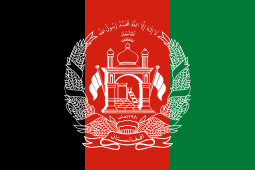


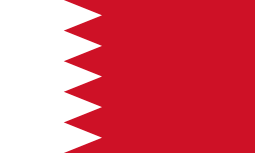

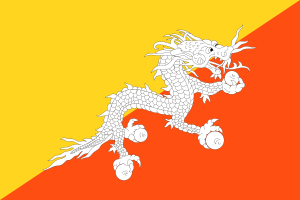
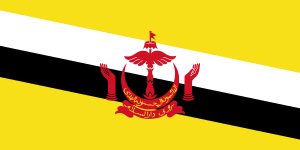
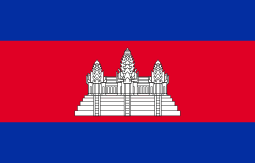
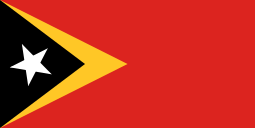


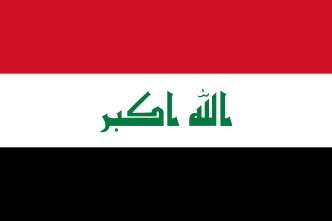




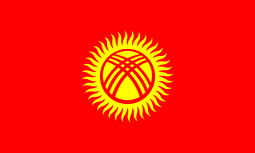
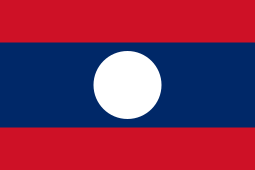

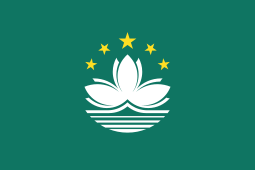

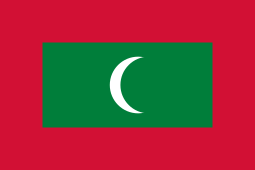
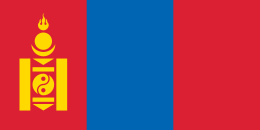




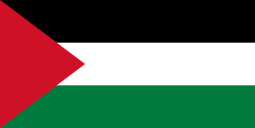
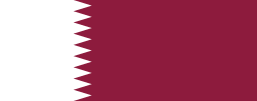








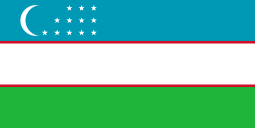

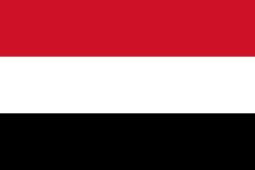
Europe
Italy
.jpg)
The outbreak was confirmed to have spread to Italy on 31 January 2020, when two Chinese tourists tested positive for SARS-CoV-2 in Rome.[402] In response, the Italian government suspended all flights to and from China and declared a state of emergency, with Prime Minister Giuseppe Conte stating that Italy is the first EU country to take this precautionary measure.[403] On 31 January, the Italian Council of Ministers appointed Angelo Borrelli, head of the Civil Protection, as Special Commissioner for the COVID-19 Emergency.[404][405] A unassociated cluster of COVID-19 cases was later further detected starting with 16 confirmed cases in Lombardy on 21 February,[406] an additional 60 cases on 22 February, and Italy's first deaths reported on the same day.
The Ministry of Health announced new guidelines for reporting cases on 27 February in response to the previous blanket testing that caused case numbers to surge and inflamed public panic.[407] It would no longer report asymptomatic cases (swabs taken from patients which tested positive but were not showing symptoms) which counted as 40 to 50% of all reported cases at the time. These people would undergo isolation at home and would be followed up with new tests until they were negative.[408][409]
On 22 February, the Italian Council of Ministers announced a new decree law to contain the outbreak, including quarantining more than 50,000 people from 11 different municipalities in northern Italy.[410] Prime Minister Giuseppe Conte said "In the outbreak areas, entry and exit will not be provided. Suspension of work activities and sport events has already been ordered in those areas."[411][412] Punishments for violating of the lockdown range from a fine of 206 euros to 3 months imprisonment.[413] Italian military and law enforcement agencies were instructed to secure and implement the lockdown.[414]
On 3 March, Chinese authorities reported that on March first and second, eight virus victims who had returned to the county of Qingtian, in East China's Zhejiang province, were suffering from the virus. All eight appear to have acquired COVID-19 in the northern town of Bergamo, Italy, a virus-ravaged municipality, where they had worked at a restaurant, Qingtian officials said. Chinese authorities called these "backflow cases" — virus carriers who contract the disease outside China, then bring it back to their homeland.[415]
On 4 March, the Italian government ordered the full closure of all schools and universities nationwide as Italy reached 100 deaths. Additionally, all major sporting events, including Serie A football matches, would be held behind closed doors until April.[416] On 9 March, all sport was suspended completely for at least one month.[417]
On 21 February, at least ten towns in the Lombardy and Veneto regions of Italy, with a total population of 50,000, were locked down in quarantine procedure following an outbreak in Codogno in Lombardy. Police mandated a curfew closing all public buildings and controlling access through police checkpoints to the so-called 'red zone' which is enforced by penalties for violations ranging from a €206 fine to three months of imprisonment against trespassers who are not health or supply workers.[413] The government of Giuseppe Conte said that sending in the armed forces to enforce the lockdown was a possibility.[414] The governor of Basilicata, Vito Bardi, instituted a mandatory 14-day quarantine for people arriving from areas in northern Italy affected by the outbreak on 24 February.[418] On the same day, 500 extra police officers were assigned to patrol the quarantined areas in Lodi and Veneto.[418]
On the morning of 8 March 2020, Conte said that much of Italy's northern territories, including Milan and Venice, would be quarantined within their region.[419] Conte said the country was locking down all of the populous Lombardy region, with movement restrictions applying to about 16 million people.[420] This will be the most aggressive response taken in any region beyond China, and will paralyse the wealthiest parts of the country as Italy attempts to constrain the rapid spread of the disease.[420] On 8 March 2020, there have been 7,375 confirmed cases, and 366 deaths in Italy.[421]
On the evening of 9 March 2020, the quarantine was expanded to all of Italy.[422]
Criticism against Italian government's responses
Italy's government has drawn criticism from scientists and WHO, for its decision to suspend direct flights to mainland China that while sounding "tough" on paper, was ineffective as "people can still arrive from risk areas via indirect routes." Walter Ricciardi, professor of Hygiene and Public Health at the Università Cattolica del Sacro Cuore in Rome and a member of the European Advisory Committee on Health Research has said "Italy was wrong, closing flights from China is of no use when there are indirect ones."
Italy's government has also been criticised for not testing or enforcing lockdowns sufficiently in some regions,[423] sending mixed messages,[424] and downplaying the severity of the situation.[425] Criticism followed disclosures by Italian Prime Minister Giuseppe Conte that protocols had not been followed at the hospital in Codogno, Lombardy that treated "patient 1" which "certainly contributed to the spread" of the virus in Italy, with Conte responding to inquiries by journalists on what protocol was broken with "This is not the time for controversy." In response to a statement by Conte that the central government may need to "revoke regional health policy powers," President of Lombardy Attilio Fontana called Conte's statement "fascist" and "talking nonsense."
On 8 March, plans by the government to quarantine 16 million people in Northern Italy were leaked early by a national newspaper, causing thousands of people to flee the region before it took place. Conte condemned the leak, calling it "unacceptable".[426]
France
_-_3.jpg)
Although it was originally thought the pandemic reached France on 24 January 2020, when the first COVID-19 case in Europe was confirmed in Bordeaux, it was later discovered that a person near Paris had tested positive for the virus on 27 December 2019 after retesting old samples.[427][428] A key event in the spread of the disease in the country was the annual assembly of the Christian Open Door Church between 17 and 24 February in Mulhouse, which was attended by about 2,500 people, at least half of whom are believed to have contracted the virus.[429][430]
On 13 March, Prime Minister Édouard Philippe ordered the closure of all non-essential public places,[431] and on 16 March, French President Emmanuel Macron announced mandatory home confinement, a policy which was extended at least until 11 May.[432][433][434] As of 23 April, France has reported more than 120,804 confirmed cases, 21,856 deaths, and 42,088 recoveries,[435] ranking fourth in number of confirmed cases.[436] In April, there were riots in some Paris suburbs.[437] On 18 May, it was reported that schools in France had to close again after reopening, due to COVID-19 case flare-ups.[438]Germany
At the end of January 2020, the first cases occurred in Bavaria in direct connection with the outbreak in Wuhan, China. After initial stagnation, several other cases were reported in different locations. During carnival in February, Heinsberg in Northrhine Westfalia was most affected, and case numbers steadily increased. By the second week of March, all federal states were affected and the first fatality was reported.[439] As of 28 March 2020 the incidence was highest in the city state of Hamburg, followed by Baden-Württemberg and Bavaria.[440] The Robert Koch Institute recommended an initial strategy of containment, until more cases would occur than could be traced back to an known case. The next phase of the epidemic, namely community transmission, was assumed to have begun first in Heinsberg, where a strategy of protection of vulnerable groups was adopted.[439]
Greece
On 26 February, the first case in Greece was confirmed, a 38-year-old woman from Thessaloniki who had recently visited Northern Italy.[441] Within the next days, health and state authorities issued precautionary guidelines and recommendations, while measures up to that point were taken locally and included the closure of schools and the suspension of cultural events in the affected areas (particularly Ilia, Achaea and Zakynthos).[442] Various municipalities around the country began disinfecting schools.[443] The Greek National Public Health Organization (NPHO), in collaboration with local authorities and doctors, is tracking and testing everyone who came in close contact with the confirmed carriers.[444][445]
By 10 March, with 89 confirmed cases and no deaths in the country,[446] the government decided to suspend the operation of all schools, universities, daycare centers and all other educational establishments nationwide and then, on 13 March, to close down all cafes, bars, museums, shopping centres, sports facilities and restaurants in the country.[447][448] On 16 March, all retail shops were also closed and all services in all areas of religious worship of any religion or dogma were suspended. Supermarkets, pharmacies, food outlets that offer take-away and delivery only, as well as some other businesses, remained open.[449][450] On 18 and 19 March, the government announced a series of economic measures of more than 10 billion euros to support the economy, businesses and employees.[451]
On 22 March, the Greek authorities announced significant restrictions on all nonessential transport and movement across the country, starting from 6 a.m. on 23 March. Movement outside the house is permitted only for specific reasons that include moving to or from the workplace, shopping for food or medicine, going to the bank, visiting a doctor or assisting a person in need of help and walking a pet or exercising outside individually or in pairs. Citizens leaving their home are required to carry their police ID or passport, as well as some type of attestation depending on the purpose of travel.[452] All passenger flights to and from Italy, Spain, Albania, North Macedonia, Turkey, the United Kingdom, the Netherlands and Germany are suspended until 15 May,[453][454] and land borders with Albania, North Macedonia and Turkey are closed, with exemptions for cargo and sanitary transports, among others.[455][456]
The measures put in place in Greece are some of the most proactive and strict in Europe and have been hailed internationally for slowing the spread of the disease and keeping the number of deaths among the lowest in Europe.[457][458][459][460][461]
Spain
On 31 January 2020, the first case was confirmed when a tourist tested positive for SARS-CoV-2 in La Gomera, Spain.[462] On 14 March, due to the increased number of cases, Spanish Prime Minister Pedro Sánchez declared a state of alarm, placing all citizens in quarantine except for those working in healthcare or other vital activities, closing all non-critical businesses, and only allowing citizens to go outside for activities such as grocery shopping or walking a pet.[463]
Criticism against Spanish government's responses
Spanish government has received criticism for its perceived slow response to the pandemic, as it did not prevent any concentrations until 11 March when there already were 1,646 infected.[464][465] The large march in Madrid for International Women's Day (8 March), which was attended by around 120,000 people received special criticism, as this event was promoted and attended by members of the government such as Irene Montero who was later confirmed to be infected.[466]
United Kingdom
On 24 March 2020, the United Kingdom brought in "some of the most far-reaching curbs on personal freedom ever introduced" in peacetime, including a three-week lockdown of the country. This included a ban on public gatherings of more than two people (excluding those one lives with) and the closing down of all non-essential businesses.[467]
Criticism against British government's responses
The UK government received intense pressure for its lax measures taken against the virus in comparison to other European countries.[468] The World Health Organization questioned the UK government's response to COVID-19 with spokeswoman Dr. Margaret Harris stating in an interview on Today that not enough is known about the science of COVID-19 to justify the UK's approach to developing "herd immunity" against the virus, saying that while "theories" can be talked about, the current situation requires "action".[469] The UK's controversial plan to tackle COVID-19 has been developed by Sir Patrick Vallance and Prof. Chris Whitty.
Government Minister Helen Whately responded by saying that the Government is "following the evidence".
Other countries and territories

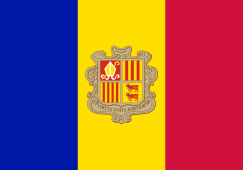








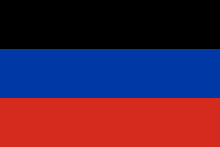

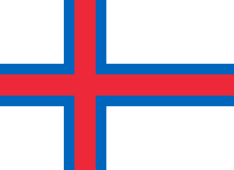


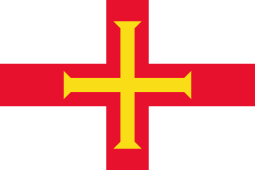




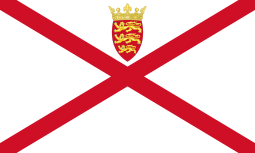
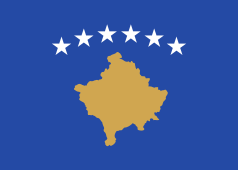

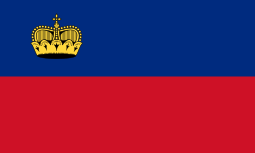



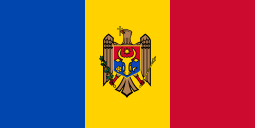



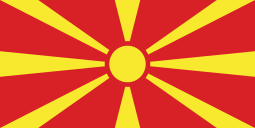




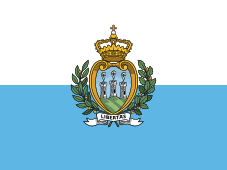







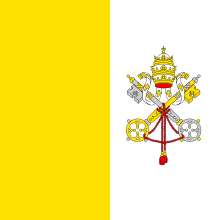
North America
Costa Rica
Since the start of the pandemic, the Ministry of Health, together with the Government, were in charge of informing the general population through a daily press conference. By 6 March, the first confirmed case of COVID-19 is registered after several results obtained by INCIENSA (Costa Rican Institute of Research and Teaching in Nutrition and Health). The 49-year-old American woman was isolated, along with her husband in a San José lodging. There were 2 previous suspected cases under investigation. The positive patient arrived with her husband on Sunday, 1 March without symptoms, at the Juan Santamaría airport, they visited Alajuela and Puntarenas, so investigations were carried out from these areas to follow up on contacts, as well as 152 people traveling on the flight that brought them to the country.[470]
On 9 March, due to the nine confirmed cases of COVID-19, the Ministry of Health in coordination with the National Emergency Commission (CNE) reported that from 10 March, events and concentration activities are canceled massive, both free and paid, while teleworking for public institutions is instructed through the Presidential Directive.[471]
The President Carlos Alvarado and the Minister of Health, Daniel Salas announced, on 12 March, preventive closings to educational centers at risk, the reduction in 50% of the approved capacity of public meeting spaces and suspension of trips abroad for public employees. A telephone line is created for inquiries about COVID-19.[472]
On 15 March, the Ministry of Health made the decision to instruct a total lockdown placing all citizens in quarantine except for those working in healthcare and delivery restaurant and food services. The closure of bars, clubs and casinos and the amusement park was informed. By this date 35 confirmed cases of COVID-19 are registered in the nation.[473]
On 16 March, The Government declares a state of National Emergency, prevents the arrival of foreigners and lessons are suspended in all schools. Costa Ricans and residents who entered the country will have to carry out mandatory preventive isolation for 14 days. 41 cases are confirmed.[474]
The first death of a patient confirmed by COVID-19 is recorded by 18 March. This is an 87-year-old man who was hospitalized in intensive care at the Alajuela Hospital.[475]
By 31 March, were registered 8 in intensive care and 347 people were infected. 4 people recovered.
United States
On 28 January 2020, the federal government publicly released its approach to COVID-19 testing.[476] Despite this, the U.S. testing effort was slow, obscuring the extent of the outbreak.[477][478] Many of the 160,000 test kits produced in February were found to be defective and were not used.[477] Academic laboratories, hospitals and private companies were not allowed to use their own tests until 29 February, when the FDA started issuing approvals for them.[477] Initially, there were eligibility restrictions for receiving a COVID-19 test (based on recent international travel, hospitalization for respiratory illness, or contact with another person already diagnosed with COVID-19). By 27 February, fewer than 4,000 tests had been conducted in the United States.[477] On March 5, the CDC relaxed its restrictions, allowing doctors to decide whom to test;[478] a week later, nearly 14,000 tests had been performed.[479] Federal funding was used to run 41 "community-based testing sites" (CBTS), but the federal government said it would stop this funding on 10 April; as a result of that decision, some of these testing sites were expected to close, shifting demand to hospitals. Those that remain open will likely be funded by states.[480]
On 31 January 2020, President Donald Trump issued a proclamation limiting entry into the United States, as immigrants or nonimmigrants, of all aliens who were physically present within the People's Republic of China, excluding the Special Administrative Regions of Hong Kong and Macau, during the 14-day period preceding their entry or attempted entry into the United States.[481]
The first six confirmed deaths in the United States were reported in late February 2020 in the Pacific Northwest state of Washington. By 8 March 2020, there were 22 U.S. deaths and over 500 reported cases.[482] A month later, on 8 April, there were 14,000 U.S. deaths and over 430,000 reported cases.[483]
The U.S. federal government's health inspectors surveyed 323 hospitals in late March, reporting "severe shortages" of test supplies, "widespread shortages" of PPE, and other strained resources due to extended patient stays while awaiting test results.[484][485]
Other countries and territories
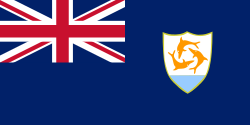
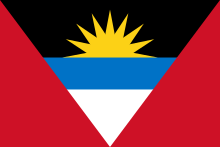
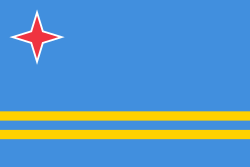
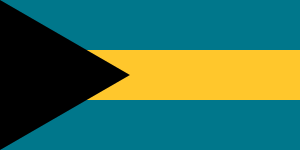
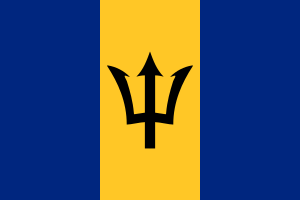
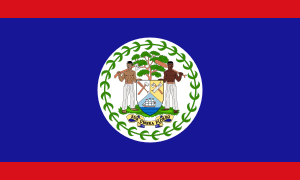
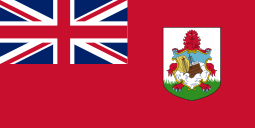
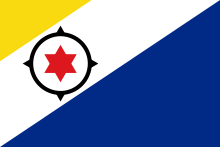
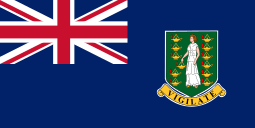

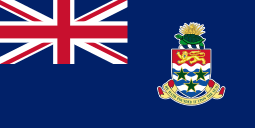


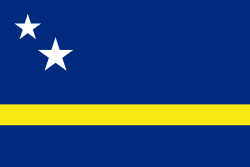
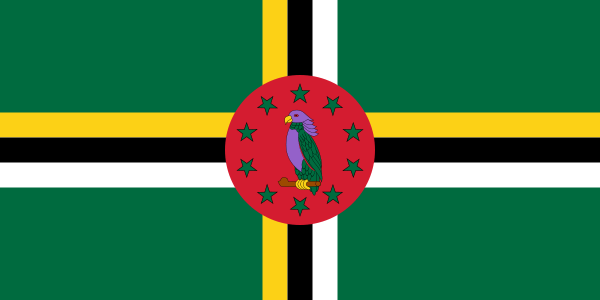

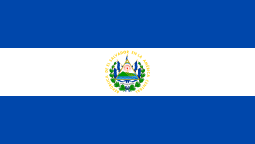
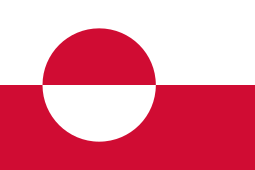
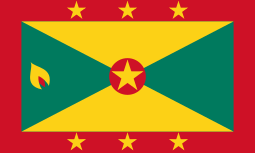

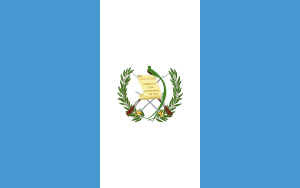
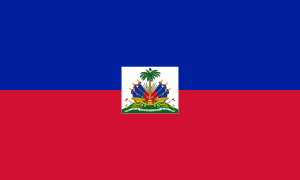
.svg.png)
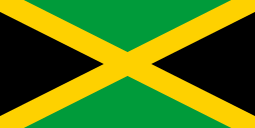


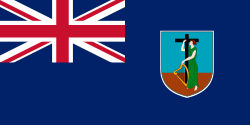


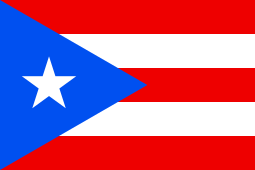
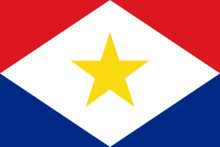
.svg.png)
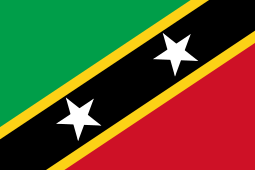
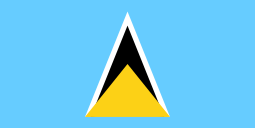

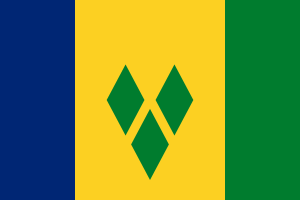
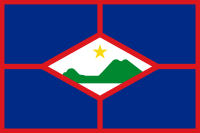
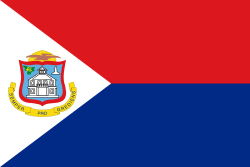
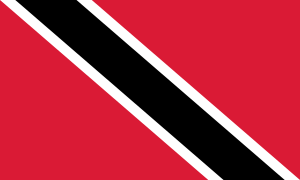
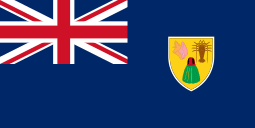
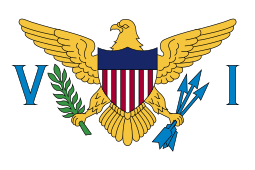
South America
Brazil
Brazilian president Jair Bolsonaro has been criticized due to "lax handling" of the outbreak and after calling it a "fantasy".[486] His lack of action has also prompted many protests across the country since 18 March 2020.[487][488] Days before, on 15 March, Bolsonaro received harsh criticism after attending a pro-government demonstration in Brasília on which he had physical contact with more than two hundred people, against the recommendations of his own Minister of Health.[489][490] Following the event, the president of the Brazilian Chamber of Deputies, Rodrigo Maia, said that Bolsonaro's acts were an "attack on public health", going against his own government guidelines, while Davi Alcolumbre, president of the Brazilian Senate, classified Bolsonaro's behaviour as "inconsequential".[491] The Brazilian Ministry of Health has also been criticized for not providing enough test kits, which may muddle the efforts to contain the outbreak in the country.[492][493]
Oceania
Fiji
At the beginning of February, the Government of Fiji announced a travel ban to China.[494] As the disease started spreading to other countries, Fiji extended the travel ban to Italy, Iran and South Korea.[495]
However, on 19 March, Fiji confirmed its first case of COVID-19 in Lautoka.[496] As a precautionary measure, the Government of Fiji announced the lockdown of the city until 7 April 2020[497] and the travel ban was further extended to the United States and the whole of Europe including the United Kingdom.[498] On 26 March, the country closed its main international airport in Nadi and all local shipping services was ceased.[499] Later on 2 April, the Government announced a lockdown of Suva, after confirmed cases in the capital.[500]
As the cases rose, Prime Minister Voreqe Bainimarama announced a nationwide curfew from 8pm to 5am and social gatherings was banned. Schools and non-essential services was closed and the public was advised to stay at home and practice good hygiene.[501]
New Zealand
On 28 January, the Ministry of Health set up the National Health Coordination Centre (NHCC) in response to the outbreak. On 3 February, the New Zealand Government announced that foreign travellers who left from China would be denied entry to New Zealand, with only New Zealand citizens and permanent residents and their family being allowed to enter.
New Zealand confirmed its first case of COVID-19 on 28 February, a New Zealand citizen in his 60s who had recently visited Iran. The travel ban was extended to include Iran on the same day.
17 March: Health Minister David Clark announced that the Government would deport foreign tourists who flout self-quarantine restrictions. Immigration New Zealand placed two foreign tourists into forced quarantine for defying Government requirements to self-quarantine for two weeks. Finance Minister Grant Robertson announced a NZ$12.1 billion COVID-19 business package. Logan Park High School in Dunedin closed for 48 hours after one of its students tested positive for the coronavirus.
18 March: The Royal New Zealand Returned and Services' Association announced that all Anzac Day services, scheduled for 25 April, would be cancelled.
19 March: The government required the cancellation of mass indoor events with more than 100 people. Prime Minister Jacinda Ardern announced the closure of New Zealand's borders to all but New Zealand citizens and residents, with effect after 11:59 pm on Thursday night.
21 March: Local councils in New Zealand's main centres announced the closures of public facilities including swimming pools, libraries, recreation centres, community centres, art galleries, and museums.
23 March: Prime Minister Ardern raised the COVID-19 alert level from two to three and announced the closure of all schools beginning on that day. The Government also announced that they would raise the national alert level to four at 11:59pm on 25 March, which would lead to a nationwide lockdown, for a period of four weeks. While all sporting matches and events as well as non-essential services such as pools, bars, cafes, restaurants, playgrounds are required to close in 48 hours, essential services such as supermarkets, petrol stations, and health services will remain open.[502]
Other countries and territories
See also
![]()
- List of COVID-19 pandemic legislation
- Curfews and lockdowns related to the COVID-19 pandemic
- Economic impact of the COVID-19 pandemic#Economic recovery programmes
- Impact of the COVID-19 pandemic on sports
- Impact of the COVID-19 pandemic on religion
- Impact of the COVID-19 pandemic on education
Notes
References
- "COVID-19 Dashboard by the Center for Systems Science and Engineering (CSSE) at Johns Hopkins University (JHU)". ArcGIS. Johns Hopkins University. Retrieved 27 June 2020.
- "COVID-19 Dashboard by the Center for Systems Science and Engineering (CSSE) at Johns Hopkins University (JHU)". Johns Hopkins University. Retrieved 20 April 2020.
- Gutiérrez, Pablo. "Coronavirus map: how Covid-19 is spreading across the world". The Guardian. Retrieved 20 April 2020.
- "Albania extends lockdown till end of coronavirus outbreak". National Post. 1 April 2020. Retrieved 4 April 2020.
- "Albania: COVID-19 lockdown measures eased from June 1 /update 12". National Post. 2 June 2020. Retrieved 2 June 2020.
- "Algeria: Government implements lockdown and curfew in Blida and Algiers March 23 /update 7". garda.com. 23 March 2020. Retrieved 30 March 2020.
- "Algeria: Authorities extend movement restrictions until May 14 /update 14". GardaWorld. 27 April 2020. Retrieved 11 May 2020.
- "Argentina Orders 'Exceptional' Lockdown in Bid to Contain Virus". Bloomberg.com. 20 March 2020. Retrieved 20 March 2020.
- "Argentina extends lockdown in Buenos Aires as coronavirus cases surpass 20,000". Reuters. 6 June 2020. Retrieved 6 June 2020.
- "Armenia Extends Coronavirus Lockdown". Radio Free Europe/Radio Liberty. 31 March 2020. Retrieved 13 April 2020.
- Mejlumyan, Ani (4 May 2020). "Armenia ends lockdown even as COVID cases spiking". Eurasianet. china. Retrieved 12 May 2020.
- "Australia starts lockdown measures as coronavirus cases jump". The Straits Times. 23 March 2020. Retrieved 23 March 2020.
- red, ORF at/Agenturen (16 March 2020). "Ausgangsbeschränkungen: Was nun erlaubt ist und was nicht". news.ORF.at (in German). Retrieved 20 March 2020.
- AFP (20 March 2020). "Austria extends confinement measures until April 13". The Local. Retrieved 21 March 2020.
- "Azerbaijan to impose curfew amid coronavirus outbreak". Anadolu Agency. 30 March 2020. Retrieved 5 April 2020.
- "Coronavirus: Bangladesh declares public holiday from March 26 to April 4". Dhaka Tribune. 23 March 2020. Retrieved 11 April 2020.
- "Bangladesh Eases Some Restrictions, Extends Lockdown to May 16". US News. 4 May 2020. Retrieved 12 May 2020.
- "Curfew extended". nationnews.com. 11 April 2020. Retrieved 23 April 2020.
- "Belgium enters lockdown over coronavirus crisis – in pictures". The Guardian. 18 March 2020. Retrieved 20 March 2020.
- Brzozowski, Alexandra (24 April 2020). "Belgian government to relax lockdown measures in three phases, starting 4 May". www.euractiv.com. Retrieved 15 May 2020.
- "Curfew extended". nationnews.com. 11 April 2020. Retrieved 23 April 2020.
- "Fifth person dies as Bermuda extends lockdown to May 2". jamaicaobserver.com. 15 April 2020. Retrieved 23 April 2020.
- "Under siege: island braces for 24-hour lockdown". royalgazette.com. 2 April 2020. Retrieved 23 April 2020.
- https://www.elpais.cr/2020/05/28/gobierno-de-bolivia-prolonga-cuarentena-variable-por-covid-19-hasta-el-30-de-junio/
- Ngatane, Nthakoana (31 March 2020). "Botswana declares state of emergency, lockdown in wake of COVID-19 cases". Eyewitness News. Retrieved 3 April 2020.
- "Casos de pacientes com coronavírus sobe para 197 em SC e governo prorroga quarentena | Santa Catarina | G1". G1.globo.com. 18 March 2020. Retrieved 1 April 2020.
- Soares, Regiane (24 March 2020). "Quarentena começa a valer nesta terça-feira em todo o estado de SP". Retrieved 6 May 2020.
- Santiago, Tatiana (17 April 2020). "Doria prorroga quarentena no estado de SP até 10 de maio devido a pandemia de coronavírus". G1 (in Portuguese). Retrieved 6 May 2020.
- Gamba, Laura (21 March 2020). "Colombia announces lockdown as coronavirus cases surge". aa.com.tr. Retrieved 7 April 2020.
- "Gobierno amplía aislamiento obligatorio hasta el 1 de julio". El Espectador. 28 May 2020.
- "COVID-19: Lagos, Brazzaville lockdown begins". Africanews. 1 April 2020. Retrieved 3 April 2020.
- "The government tightens sanitary measures to avoid contagion.Closed beaches and quarantine nationwide". Ministry of Health. 23 March 2020. Retrieved 23 March 2020.
- Simmonds, Lauren (18 March 2020). "Croatia COVID-19 Lockdown: Bars, Restaurants etc to Close Midnight March 18, 2020". Total Croatia News. Retrieved 7 April 2020.
- Rogulj, Daniela (27 March 2020). "PHOTOS: Shopping in Split One Week into Croatian Lockdown". Total Croatia News. Retrieved 15 April 2020.
- Ministry of the Interior, Czech Republic
- "Ecuador shrimp, tuna processors endure despite lockdown, curfew". undercurrentnews.com. 25 March 2020. Retrieved 30 March 2020.
- Reuters (12 March 2020). "El Salvador bans mass gatherings as virus spreads – as it happened". The Guardian.
- "Eritrea enforces 21-day lockdown to contain spread of COVID-19". Xinhua News Agency. 2 April 2020. Retrieved 4 April 2020.
- "Fiji city sealed off as first COVID-19 case confirmed". 19 March 2020. Retrieved 19 March 2020.
- Vacala, Kelly (7 April 2020). "Part of Kashmir in Lautoka under lockdown". Fijian Broadcasting Corporation. Retrieved 7 April 2020.
- Tahana, Jamie (2 April 2020). "Fiji confirms two new Covid-19 cases, Suva will go into lockdown". Radio New Zealand. Retrieved 2 April 2020.
- Susu, Aqela (2 April 2020). "COVID-19: Suva to go on lockdown from tomorrow". The Fiji Times. Retrieved 7 April 2020.
- Yle (25 March 2020). "Finland shuts down Uusimaa to fight coronavirus". Yle. Retrieved 27 March 2020.
- "France imposes 15-day lockdown and mobilises 100,000 police to enforce coronavirus restrictions". The Independent. 16 March 2020. Retrieved 20 March 2020.
- Cuthbertson, Anthony (13 April 2020). "Coronavirus: France extends lockdown until 11 May". The Independent. Retrieved 14 April 2020.
- "COVID-19: Georgia Announces Nationwide Lockdown, Partial Curfew". Civil Georgia. 30 March 2020. Retrieved 13 April 2020.
- "An Overview of the Updated Restrictions on Public Life in Germany". spiegel.de. Retrieved 23 April 2020.
- "Coronavirus: Germany slowly eases lockdown measures". BBC. 15 April 2020. Retrieved 2 May 2020.
- "Kontaktbeschränkung, Masken, Einkaufen: Was jetzt in Ihrem Bundesland gilt". focus.de (in German). Retrieved 23 April 2020.
- "West African countries are trying to shut down to contain the coronavirus spread". qz.com. 28 March 2020. Retrieved 30 March 2020.
- Nyabor, Jonas (5 April 2020). "We'll decide on extension of lockdown this week – Akufo-Addo". Citi Newsroom. Retrieved 7 April 2020.
- "Greece imposes lockdown after coronavirus infections jump". Greece. 22 March 2020. Retrieved 23 March 2020.
- Kathimerini (23 April 2020). "Greece extends lockdown until May 4|ΕΛΛΑΔΑ". kathimerini.gr (in Greek). Retrieved 30 April 2020.
- "'Strict' lockdown measures from midnight". bbc.co.uk. BBC News. BBC. 24 March 2020. Retrieved 24 March 2020.
- "Absolute Curfew for the entire country". COVID-19 Honduras (in Spanish). Secretaria de Seguridad. 20 March 2020. Retrieved 10 April 2020.
- "Se extiende toque de queda absoluto hasta el 17 de mayo y se restringe circulación a un dígito por día" [Curfew has been extended to 17 May and circulation restricted to one digit per day] (in Spanish). Secretaría de Seguridad. 3 May 2020. Retrieved 3 May 2020.
- "Hungary PM imposes lockdown, sees coronavirus peak by July". Reuters. 27 March 2020. Retrieved 27 March 2020.
- "Coronavirus in India LIVE Updates: PM Modi announces 21-day national lockdown, says extremely necessary to take this step". India Today. 24 March 2020. Retrieved 24 March 2020.
- "Lockdown 5.0 Guidelines in India (state-wise): New Lockdown Extension rules announced; night curfew relaxed". The Financial Express. 29 May 2020. Retrieved 31 May 2020.
- "Iran: Natiowide lockdown implemented as over 11,300 COVID-19 cases confirmed March 13 /update 12". garda.com. 14 March 2020. Retrieved 10 May 2020.
- "Why Hassan Rouhani Ended Iran's Lockdown". foreignpolicy.com. 5 May 2020. Retrieved 10 May 2020.
- "Iraq on total lockdown until March 28 over virus fears". thestar.com.my. 22 March 2020. Retrieved 30 March 2020.
- "Iraq extends coronavirus lockdown until mid-April". alarabiya.net. 26 March 2020. Retrieved 30 March 2020.
- Leahy, Pat; Cullen, Paul; Lynch, Suzanne; Kelly, Fiach (12 March 2020). "Coronavirus: Schools, colleges and childcare facilities in Ireland to shut". The Irish Times. Retrieved 1 June 2020.
- "Ireland extends Covid-19 lockdown to 18 May before phased exit". 2 May 2020. Retrieved 2 May 2020.
- The Times of Israel (2 April 2020). "Government declares virus-hit city of Bnei Brak a 'restricted zone'". Retrieved 2 April 2020.
- Legorano, Eric Sylvers and Giovanni (9 March 2020). "As Virus Spreads, Italy Locks Down Country". Wall Street Journal. ISSN 0099-9660. Retrieved 20 March 2020.
- "Italy begins reopening bars and cafes as rate of deaths and new infections falls again – as it happened". The Guardian. 19 May 2020. Retrieved 22 May 2020.
- "St. Catherine COVID-19 Lockdown". jis.gov.jm. 15 April 2020. Retrieved 23 April 2020.
- Sharif, Osama Al (19 March 2020). "Jordan announces lockdown in effort to contain coronavirus". Al-Monitor.
- "Jordan extends coronavirus lockdown to end of April". The National. 13 April 2020. Retrieved 2 May 2020.
- "The government declares a state of emergency public health". telegrafi.com. 15 March 2020. Retrieved 30 March 2020.
- "The new government measures are valid until May 4!". indeksonline.net. 13 March 2020. Retrieved 30 March 2020.
- "Preparing for Coronavirus Lockdown, Kuwait Asks Muslims to Pray at Home". algemeiner.com. 13 March 2020. Retrieved 30 March 2020.
- AFP (15 March 2020). "Lebanon announces two-week lockdown over coronavirus". France 24. Retrieved 21 March 2020.
- "Montserrado, Margibi on Lockdown Amid COVID-19 Fears". liberianobserver.com. 23 March 2020. Retrieved 30 March 2020.
- "Libya on lockdown from 6.00 PM to 6.00 AM amid Coronavirus preventive measures". libyanexpress.com. 22 March 2020. Retrieved 31 March 2020.
- "Karantinas kol kas – pusei mėnesio: ką nuo pirmadienio uždraudė Vyriausybė?". 15min.lt (in Lithuanian). Retrieved 24 March 2020.
- {}
- "'Everyone stay at home' - Madagascar orders lockdown of two main cities in virus fight". news24.com. 23 March 2020. Retrieved 30 March 2020.
- AFP (20 April 2020). "Lockdown in 3 Madagascar cities set to ease". Medicalxpress. Retrieved 12 May 2020.
- "Covid-19: Movement Control Order imposed with only essential sectors operating". New Straits Times. 16 March 2020. Archived from the original on 16 March 2020. Retrieved 16 March 2020.
- "Conditional MCO extended for another four weeks to June 9". The Star. 10 May 2020. Archived from the original on 10 May 2020. Retrieved 10 May 2020.
- Mexico begins to lift coronavirus lockdown Washington Post.
- "Mongolia: Government places Ulaanbaatar and other cities on lockdown due to COVID-19 March 10 /update 7". garda.com. Retrieved 3 May 2020.
- "Montenegro Places First Town under Total Quarantine". 25 March 2020. Retrieved 25 March 2020.
- H24info. "URGENT. Le Maroc déclare l'état d'urgence sanitaire". H24info (in French). Retrieved 20 March 2020.
- Eljechtimi, Ahmed (18 May 2020). "Morocco extends coronavirus lockdown to June 10". Reuters. Retrieved 23 May 2020.
- Shikongo, Arlana (25 March 2020). "Partial lockdown in effect from Friday". The Namibian. p. 1.
- Ngatjiheue, Charmaine (30 April 2020). "Namibia to reopen economy ... moves to 'stage two', post-lockdown". The Namibian. p. 1.
- "Nepal locks down for a week to stem coronavirus spread". The Jakarta Post. 24 March 2020. Retrieved 25 March 2020.
- Press Trust of India (31 May 2020). "Nepal extends coronavirus lockdown till June 14". Hindustan Times. Retrieved 4 June 2020.
- "Covid-19 coronavirus: What the lockdown means for you and how it will be enforced". The New Zealand Herald. 24 March 2020. Retrieved 24 March 2020.
- Small, Zane (11 May 2020). "Livestream: Prime Minister Jacinda Ardern reveals if New Zealand will shift to COVID-19 alert level 2". Newshub. New Zealand. Retrieved 11 May 2020.
- Mbah, Fidelis (30 March 2020). "Nigeria announces lockdown of major cities to curb coronaviruss". Al Jazeera. Retrieved 30 March 2020.
- "Son dakika haberi: KKTC'de sokağa çıkma yasağı kararı alındı". 30 March 2020. Retrieved 1 April 2020.
- "Muscat lockdown from Friday". Oman Observer. 8 April 2020. Retrieved 8 April 2020.
- "Muscat governorate lockdown extended". Oman Observer. 5 May 2020. Retrieved 5 May 2020.
- "Commercial market in Jaalan Bani Bu Ali locked down". Oman Observer. 16 April 2020. Retrieved 19 April 2020.
- "Coronavirus pandemic: Pakistan to extend lockdown for 2 more weeks as death toll reaches 31". The Statesman. 2 April 2020. Retrieved 15 April 2020.
- Shehzad, Rizwan (24 April 2020). "Countrywide lockdown stretched till May 9". The Express Tribune. Retrieved 25 April 2020.
- "Ejecutivo decreta cuarentena total de manera indefinida | La Prensa Panamá". www.prensa.com. 25 March 2020.
- "Papua New Guinea in lockdown: what it means for you and your business". businessadvantagepng.com. 25 March 2020. Retrieved 30 March 2020.
- "Paraguay Confirms First Death Due to Coronavirus: Health Ministry". NY Times. 20 March 2020. Retrieved 30 March 2020.
- "Paraguay plans switch to 'smart' quarantine after coronavirus curve flattens". Reuters. 24 April 2020.
- "Coronavirus en Perú: Gobierno anuncia cuarentena obligatoria por 15 días por coronavirus". Gestión (in Spanish). 15 March 2020. Retrieved 27 March 2020.
- "Perú extiende cuarentena hasta 30 de junio". Associated Press (in Spanish). 22 May 2020. Retrieved 22 May 2020.
- "Cebu province placed under enhanced community quarantine due to COVID-19 threat". CNN Philippines. 26 March 2020. Retrieved 31 March 2020.
- Ranada, Pia (24 April 2020). "Cebu, Davao City, other areas in VisMin on lockdown until May 15". Rappler. Retrieved 24 April 2020.
- Merez, Arianne (12 May 2020). "'Modified' lockdown set in Metro Manila, 2 other areas". ABS-CBN News. Retrieved 12 May 2020.
- "Sara Duterte says no more localized quarantines as Davao Region lockdown begins". Rappler. 19 March 2020. Retrieved 25 March 2020.
- Luna, Franco. "Travel to and from Manila suspended from March 15 as Code Red Sublevel 2 raised over COVID-19". Philippine Star. Retrieved 12 March 2020.
- Merez, Arianne (7 April 2020). "Philippines extends lockdown of millions in Luzon to April 30". ABS-CBN News. Retrieved 7 April 2020.
- Calonzo, Andreo (24 April 2020). "Philippines Extends Lockdown of Manila and Nearby Areas to May 15". Bloomberg L.P. Retrieved 24 April 2020.
- "Metro Manila, Laguna, 7 other areas shift to modified ECQ". GMA News. 16 May 2020. Retrieved 16 May 2020.
- Jones, Ewan (13 March 2020). "Poland in COVID-19 LOCKDOWN! PM orders bars, restaurants, shopping centres and borders closed - and cancels ALL flights". The First News. Polish Press Agency. Retrieved 21 March 2020.
- "Coronavirus: What are the lockdown measures across Europe?". Deutsche Welle. Retrieved 8 April 2020.
- "State of Emergency Explained". Portugal News Newspaper. 19 March 2020. Retrieved 25 March 2020.
- Pattisson, Pete; Sedhai, Roshan (20 March 2020). "Covid-19 lockdown turns Qatar's largest migrant camp into 'virtual prison'". The Guardian. Retrieved 3 April 2020.
- "Klaus Iohannis anunță carantină totală în România: Tot ce era până acum recomandare, devine obligatoriu. Măsurile, în vigoare de mâine". Digi24 (in Romanian). 24 March 2020. Retrieved 24 March 2020.
- "Romania: Government to extend COVID-19 state of emergency by 30 days from week of April 13 /update 5". GardaWorld. 6 April 2020. Retrieved 8 April 2020.
- "Moscow goes into lockdown, urges other regions to take steps to slow coronavirus". France 24. 30 March 2020. Retrieved 30 March 2020.
- "Moscow extends partial lockdown over coronavirus until May 1". Reuters. 3 April 2020. Retrieved 14 April 2020.
- "Coronavirus in Russia: The Latest News | May 1". Moscow Times. 1 May 2020. Retrieved 2 May 2020.
- "COVID-19 Information". U.S. Embassy in Russia. 30 April 2020. Retrieved 2 May 2020.
- "Coronavirus: Rwanda imposes Africa's first lockdown". dw.com. 22 March 2020. Retrieved 28 March 2020.
- Tasamba, James (2 April 2020). "Rwanda extends nationwide lockdown until April 19". Anadolu Agency. Retrieved 8 April 2020.
- "Samoa officially on lock down". Radio New Zealand. 26 March 2020. Retrieved 26 March 2020.
- "Samoa officially on lock down". Fijian Broadcasting Corporation. 26 March 2020. Retrieved 8 April 2020.
- Nuovo decreto legge in vigore fino al 6 aprile (in Italian)
- "San Marino, lockdown fino al 5 maggio ma via libera alle vendite a domicilio". libertas SM. 17 April 2020. Retrieved 2 May 2020.
- "Saudi Arabia puts fourth city on lockdown over coronavirus". thestar.com.my. 29 March 2020. Retrieved 30 March 2020.
- "Saudi locks down Qatif as coronavirus surges in the Gulf". aljazeera.com. 8 March 2020. Retrieved 30 March 2020.
- "Serbia to let some businesses reopen in partial easing of coronavirus lockdown". Reuters. 20 April 2020. Retrieved 2 May 2020.
- "Cafes, restaurants to reopen as Serbia eases lockdown". New Straits Times. 29 April 2020. Retrieved 2 May 2020.
- Cheong, Danson (3 April 2020). "Coronavirus: Most workplaces to close, schools will move to full home-based learning from next week, says PM Lee". The Straits Times. Singapore. Retrieved 3 April 2020.
- Lai, Linette (21 April 2020). "Covid-19 circuit breaker to be extended by one month to June 1: PM Lee". The Straits Times. Singapore. Retrieved 21 April 2020.
- Burke, Jason (23 March 2020). "South Africa to go into 21-day lockdown on Thursday night". The Guardian. Retrieved 24 March 2020.
- Ramaphosa, Cyril. "South Africa's coronavirus lockdown extended by 2 weeks". BusinessTechSA. Retrieved 16 April 2020.
- "Pedro Sánchez anuncia el estado de alarma para frenar el coronavirus 24 horas antes de aprobarlo". ELMUNDO (in Spanish). 13 March 2020. Retrieved 20 March 2020.
- "Spain Extends Lockdown as Virus Cases Rise Again in Europe". Bloomberg.com. 23 April 2020. Retrieved 23 April 2020.
- "SPOLICE CURFEW FOR PUTTALAM". Hiru News (in Spanish). 18 March 2020. Retrieved 10 June 2020.
- "Spain Extends Lockdown as Virus Cases Rise Again in Europe". Retrieved 10 June 2020.
- Nortajuddin, Athira (26 March 2020). "Surviving the virus lockdown". The Asean Post. Retrieved 4 April 2020.
- Reuters (27 April 2020). "Thailand to Extend Coronavirus Emergency Measures, Sees Improvement". USNews. Retrieved 28 April 2020.
- "Trinidad on lockdown". Nation News. 16 March 2020. Retrieved 23 April 2020.
- "Tunisia orders army into streets to enforce coronavirus lockdown". Reuters. 23 March 2020. Retrieved 23 March 2020.
- "Tunisia extends lockdown by two weeks, releases prisoners". Al Jazeera. 1 April 2020. Retrieved 8 April 2020.
- "Turkey to impose four-day lockdown". Hürriyet. 20 April 2020. Retrieved 23 April 2020.
- "UAE: Three-day lockdown scheduled March 26-29 /update 16". garda.com. 26 March 2020. Retrieved 30 March 2020.
- "Dubai imposes two-week lockdown as Gulf states step up coronavirus fight". Reuters. 5 April 2020. Retrieved 8 April 2020.
- "Boris Johnson orders UK lockdown to be enforced by police". The Guardian. 23 March 2020. Retrieved 19 April 2020.
- Yap, Jennifer Calfas, Margherita Stancati and Chuin-Wei (20 March 2020). "California Orders Lockdown for State's 40 Million Residents". Wall Street Journal. ISSN 0099-9660. Retrieved 20 March 2020.
- Associated Press; NBC (20 March 2020). "Coronavirus Outbreak Latest: No New Cases in Wuhan; US States Order Lockdowns". NBC Connecticut. Retrieved 21 March 2020.
- Perper, Rosle; Al-Arshani, Sarah; Secon, Holly (27 March 2020). "Nearly a third of Americans are now under orders to stay home — here's a running list of coronavirus lockdowns in US states and cities". Business Insider. Retrieved 10 April 2020.
- Petrella, Dan; St. Clair, Stacy; Johnson, Steve; Pratt, Gregory (20 March 2020). "Gov. J.B. Pritzker issues order requiring residents to 'stay at home' starting Saturday". Chicago Tribune. Chicago. Retrieved 21 March 2020.
- Ahern, Mary Ann (23 April 2020). "Illinois' Stay-at-Home Order Modified, Extended Through May, Pritzker Announces". NBC 5 Chicago. Archived from the original on 24 April 2020. Retrieved 24 April 2020.
- Carpenter, Tim; Smith, Sherman (21 March 2020). "Kansas coronavirus update: 30-day quarantine ordered for KC; state records second death, 55 cases". The Topeka Capital-Journal. Retrieved 24 March 2020.
- Hauck, Grace; Reyes, Lorenzo; L. Ortiz, Jorge (21 March 2020). "'Stay Home, Stay Healthy': These states have ordered residents to avoid nonessential travel amid coronavirus". USA Today. Retrieved 10 April 2020.
- Impelli, Matthew (9 April 2020). "WHICH STATE LOCKDOWNS IN THE U.S. HAVE BEEN EXTENDED?". Newsweek. Archived from the original on 26 April 2020. Retrieved 26 April 2020.
- "Michigan governor issues 'stay-at-home' order as COVID-19 cases increase". WDIV-TV. 23 March 2020. Retrieved 23 March 2020.
- Stracqualursi, Veronica (20 March 2020). "Cuomo orders all nonessential New York workers to stay home". CNN. Retrieved 21 March 2020.
- Lardieri, Alexa (15 May 2020). "Lockdown extended for most of coronavirus-battered New York". CBS News. Agence France-Presse. Retrieved 17 May 2020.
- Rogoway, Mike (23 March 2020). "Oregon governor issues 'stay home' order to enforce coronavirus restrictions". The Oregonian. Retrieved 23 March 2020.
- "Wisconsin Governor Issues Order Closing Businesses". NBC Chicago. Retrieved 24 March 2020.
- "Venezuela's to implement nationwide quarantine as coronavirus cases rise to 33". Reuters. 16 March 2020. Retrieved 24 March 2020.
- Baibhawi, Riya (12 April 2020). "Venezuela Extends Lockdown Till May 13 Amid Coronavirus Pandemic". republicworld. Retrieved 2 May 2020.
- "Vietnam: Borders closed with Laos and Cambodia as nationwide lockdown implemented April 1". GardaWorld. 2 April 2020. Archived from the original on 31 May 2020. Retrieved 31 May 2020.
- Fages, Véronique Maeva (29 May 2020). "Here are 4 ways Viet Nam has managed to control COVID-19". World Economic Forum. Archived from the original on 31 May 2020. Retrieved 31 May 2020.
Vietnam relied on four relatively cost-effective solutions to combat the virus, including strategic testing, contact tracing through apps and effective public communication campaigns. As well as these, it implemented a national lockdown between 1st and 22nd April.
- "Zimbabwe Begins Lockdown to Fight COVID19". voanews.com. 30 March 2020. Retrieved 30 March 2020.
- Reuters (19 April 2020). "Zimbabwe president extends coronavirus lockdown by two more weeks". Reuters. Retrieved 20 April 2020.
- Jones S, Kassam A (26 March 2020). "Spain defends response to coronavirus as global cases exceed 500,000". The Guardian. Retrieved 29 March 2020.
- "Coronavirus: Half of humanity now on lockdown as 90 countries call for confinement". Euronews. 3 April 2020.
- "A third of the global population is on coronavirus lockdown—here's our constantly updated list of countries and restrictions". Business Insider. 28 March 2020.
- "About 90% of Americans have been ordered to stay at home. This map shows which cities and states are under lockdown". Business Insider. 2 April 2020.
- "Philippines isolates hundreds of health workers as coronavirus cases rise in south-east Asia". The Guardian. 23 March 2020.
- Chutel L, Dahir AL (27 March 2020). "With Most Coronavirus Cases in Africa, South Africa Locks Down". The New York Times. Retrieved 2 April 2020.
- Nair S (29 March 2020). "For a billion Indians, lockdown has not prevented tragedy". The Guardian.
- "Chaos and hunger amid India coronavirus lockdown". Al Jazeera. 27 March 2020.
- Ramaphosa, Cyril. "National Address: South Africa on lockdown from Thursday". Daily Maverick. Retrieved 27 March 2020.
- Ramaphosa, Cyril. "South Africa's coronavirus lockdown extended by 2 weeks". BusinessTechSA. Retrieved 16 April 2020.
- Cohen, Jon (26 January 2020). "Wuhan seafood market may not be source of novel virus spreading globally". Science. doi:10.1126/science.abb0611. Archived from the original on 27 January 2020. Retrieved 8 February 2020.
- "Archived copy" 武汉市卫健委关于当前我市肺炎疫情的情况通报. Wuhan Municipal Health Commission (in Chinese). 31 December 2019. Archived from the original on 9 January 2020. Retrieved 8 February 2020.CS1 maint: archived copy as title (link)
- "Novel Coronavirus". World Health Organization (WHO). Archived from the original on 2 February 2020. Retrieved 6 February 2020.
- 习近平:在中央政治局常委会会议研究应对新型冠状病毒肺炎疫情工作时的讲话 (in Chinese). Xinhua News Agency. 15 February 2020. Retrieved 15 February 2020.
- "Xi began fighting the virus earlier than previously known, a newly published speech indicates". The New York Times. 15 February 2020. Retrieved 24 February 2020.
- Griffiths, James; Gan, Nectar (22 January 2020). "China confirms Wuhan virus can be spread by humans". CNN.
- "China halts flights and trains out of Wuhan as WHO extends talks". Channel NewsAsia. 23 January 2020. Archived from the original on 23 January 2020. Retrieved 23 January 2020.
- "China to extend Spring Festival holiday to contain coronavirus pandemic". Beijing. Xinhua News Agency. 26 January 2020.
- "Chinese Premier Li visits Wuhan, epicenter of virus outbreak". Beijing. Reuters. 27 January 2020. Archived from the original on 27 January 2020. Retrieved 27 January 2020.
- 李雪晴. "China's State Council extends Spring Festival holiday – Chinadaily.com.cn". China Daily. Archived from the original on 31 January 2020. Retrieved 7 February 2020.
- "Archived copy" 海关总署公告2020年第16号(关于重新启动出入境人员填写健康申明卡制度的公告). General Administration of Customs, P.R. China (in Chinese). Archived from the original on 26 January 2020. Retrieved 27 January 2020.CS1 maint: archived copy as title (link)
- Liu, Hongxia (26 January 2020). 海关总署宣布重新启动出入境人员填写健康申明卡制度 [The General Administration of Customs announced they will restart the system for filling health declaration forms for passengers exit and enter the border] (in Chinese). Beijing. Xinhua News Agency. Retrieved 27 January 2020.
- "China re-launches health declaration form requirement on border". China Global Television Network. 26 January 2020. Archived from the original on 27 January 2020. Retrieved 27 January 2020.
- "China extends Spring Festival holiday to contain coronavirus pandemic". Xinhua News Agency. 27 January 2020. Archived from the original on 27 January 2020. Retrieved 27 January 2020.
- Lum, Alvin; Sum, Lok-kei (25 January 2020). "China coronavirus: Hong Kong leader hits back at criticisms of being slow". South China Morning Post. Archived from the original on 25 January 2020. Retrieved 25 January 2020.
- "Wuhan bans cars, Hong Kong closes schools as virus spreads". Associated Press. 25 January 2020. Archived from the original on 25 January 2020. Retrieved 25 January 2020.
- Wang, Chenxi (24 January 2020). 澳门关闭博物馆延期开学防控新型冠状病毒疫情 [Macau closed museums and delayed school-openings to control coronavirus pandemic] (in Chinese). Xinhua News Agency. Retrieved 25 January 2020.
- "Chinese prosecutors urged to toughen crackdown on epidemic-related crimes". Xinhua News Agency. Archived from the original on 1 February 2020. Retrieved 2 February 2020.
- "Archived copy" 武汉肺炎病毒持续扩散 湖北下令封15个城市 (in Chinese). Germany: Deutsche Welle. 24 January 2020. Archived from the original on 24 January 2020. Retrieved 25 January 2020.CS1 maint: archived copy as title (link)
- Coleman, Alistair; Allen, Kerry (22 January 2020). "Chinese social media users worry over virus". BBC News.
- "Coronavirus Crisis Exposes Cracks in China's Facade of Unity". The New York Times. 28 January 2020. Archived from the original on 29 January 2020. Retrieved 30 January 2020.
- Smith, Nicola; Newey, Sarah (26 January 2020). "Coronavirus: Fears rise of Chinese cover-up as 56 million in lockdown and hospitals overwhelmed". The Telegraph.
- "Residents of China's Wuhan rush to stock up as transport links severed". Reuters. 23 January 2020. Archived from the original on 24 January 2020. Retrieved 24 January 2020.
- 武汉一线 [Wuhan First-line: Rising vegetable prices, napa cabbages 35 CNY each]. 澎湃新闻-The Paper (in Chinese). Archived from the original on 23 January 2020. Retrieved 23 January 2020.
- "China warns coronavirus strengthening as Lunar New Year holiday extended three more days to discourage travel". ABC News. Australian Broadcasting Corporation. 27 January 2020. Retrieved 27 January 2020.
- "Wuhan virus: China imposes partial lockdown in Shantou, the first city to face measure outside virus epicentre". The Straits Times. Archived from the original on 26 January 2020. Retrieved 26 January 2020.
- "China's Shantou city will not ban cars, ships, people from entering, state media reports". Reuters. 26 January 2020. Archived from the original on 26 January 2020. Retrieved 26 January 2020.
- Ying, Rui (27 January 2020). 北京、深圳、广州、南京,这些城市官宣"不封城" [Beijing, Shenzhen, Guangzhou, Nanjing – these cities officially announced they "will not lock down"]. The Beijing News (in Chinese). Archived from the original on 26 January 2020. Retrieved 26 January 2020.
- "Coronavirus: Shanghai neighbour Zhejiang imposes draconian quarantine". South China Morning Post. 6 February 2020. Archived from the original on 6 February 2020. Retrieved 8 February 2020.
- 比照SARS集中醫治 武漢擬6天建千床醫療站 – 兩岸 – 重點新聞 (in Chinese). Central News Agency. 23 January 2020. Retrieved 23 January 2020.
- 李克强督战武汉"小汤山"医院建设:把这里建成遏制疫情蔓延的"安全岛". gov.cn (in Chinese). 28 January 2020.
- "Wuhan to follow Beijing's SARS treatment model in new coronavirus control". Xinhua News Agency. 24 January 2020. Retrieved 24 January 2020.
- Siddique, Haroon (24 January 2020). "Chinese city plans to build coronavirus hospital in days". The Guardian. Retrieved 13 February 2020.
- Hartley-Parkinson, Richard (29 January 2020). "China completes 1,000-bed coronavirus hospital in just 48 hours". Retrieved 30 January 2020.
- Yu, Sun; McMorrow, Ryan (12 February 2020). "China seizes hotels, hospitals and cars to fight coronavirus". Financial Times.
- "雷神山医院病床增至1600张". bjnews.com.cn. 29 January 2020. Archived from the original on 29 January 2020. Retrieved 30 January 2020.
- "火神山、雷神山医院将于2月3日和2月6日收治病人". 31 January 2020. Archived from the original on 2 February 2020. Retrieved 10 February 2020.
- He, Guanghua; Tian, Doudou (25 January 2020). 武汉将再建一个"小汤山"医院 [Wuhan to build another "Xiaotangshan" hospital]. People's Daily (in Chinese). Retrieved 25 January 2020.
- "First 30 viral pneumonia patients admitted in Leishenshan Hospital". CGTN. 9 February 2020. Retrieved 10 February 2020.
- 各地逾2.5万名医疗队员支援湖北. People's Daily (in Chinese). 16 February 2020.
- "Coronavirus: China says disease 'curbed' in Wuhan and Hubei". BBC. 10 March 2020.
- "The true cost of China's coronavirus cover-up: How state censorship let the outbreak spread". Financial Times. 7 February 2020. Retrieved 7 March 2020 – via Nationalpost.com.
- Griffiths, James. "Wuhan is the latest crisis to face China's Xi, and it's exposing major flaws in his model of control". CNN. Archived from the original on 8 February 2020. Retrieved 10 February 2020.
- Kristof, Nicholas (29 January 2020). "Coronavirus Spreads, and the World Pays for China's Dictatorship". The New York Times. Retrieved 2 March 2020.
- "China's slow response to coronavirus has shown the weakness of its centralised model". New Statesman. Archived from the original on 28 January 2020. Retrieved 10 February 2020.
- "新冠肺炎吹哨醫師 李文亮病逝 民眾激憤". 世界新聞網 (in Chinese). 7 February 2020. Retrieved 10 February 2020.
- "Coronavirus kills Chinese whistleblower doctor". BBC News. 7 February 2020. Retrieved 10 February 2020.
- Zhong, Raymond (27 January 2020). "As Virus Spreads, Anger Floods Chinese Social Media". The New York Times. Archived from the original on 28 January 2020. Retrieved 10 February 2020.
- "Li Wenliang: Coronavirus death of Wuhan doctor sparks outpouring of anger". BBC News. 7 February 2020. Archived from the original on 7 February 2020. Retrieved 10 February 2020.
- Graham-Harrison, Emma (6 February 2020). "'Hero who told the truth': Chinese rage over coronavirus death of whistleblower doctor". The Guardian. Archived from the original on 7 February 2020. Retrieved 10 February 2020.
- "Li Wenliang's death is a new crisis for China's rulers". The Economist. ISSN 0013-0613. Retrieved 12 February 2020.
- "Xi orders resolute efforts to curb virus spread". Xinhua News Agency. 20 January 2020. Archived from the original on 24 January 2020. Retrieved 25 January 2020.
- Fifield, Anna; Sun, Lina H.; Bernstein, Lenny (22 January 2020). "Chinese officials try to contain virus outbreak as first case confirmed in U.S." The Washington Post. Archived from the original on 24 January 2020. Retrieved 25 January 2020.
- Zheng, William; Lau, Mimi (21 January 2020). "China's credibility on the line as it tries to dispels fears it will cover up spread of Wuhan virus". South China Morning Post. Archived from the original on 25 January 2020. Retrieved 25 January 2020.
- Wei, Lingling (28 January 2020). "China Strains to Stamp Out Coronavirus Criticisms at Home". The Wall Street Journal. ISSN 0099-9660. Retrieved 29 January 2020.
- Rourke, Alison; Blackall, Molly; Gayle, Damien; Weaver, Matthew; Murray, Jessica; Doherty, Ben (31 January 2020). "Virus death toll reaches 213 in China – as it happened". The Guardian. ISSN 0261-3077. Archived from the original on 30 January 2020. Retrieved 2 February 2020.
- "In coronavirus pandemic, China's leaders scramble to avert a Chernobyl moment". The Washington Post. Archived from the original on 4 February 2020. Retrieved 10 February 2020.
- "China's online censors tighten grip after brief coronavirus respite". Reuters. 11 February 2020. Retrieved 12 February 2020.
- Kuo, Lily (4 February 2020). "Taking credit, avoiding blame? Xi Jinping's absence from coronavirus frontline". The Guardian. ISSN 0261-3077. Archived from the original on 4 February 2020. Retrieved 5 February 2020.
- Griffiths, James. "China is waking up to the dangers of knee-jerk censorship in a crisis". CNN. Archived from the original on 2 February 2020. Retrieved 2 February 2020.
- Gilbert, David (30 January 2020). "You Can Now Go to Jail in China for Criticizing Beijing's Coronavirus Response". Vice. Archived from the original on 31 January 2020. Retrieved 2 February 2020.
- "China's online censors tighten grip after brief coronavirus respite". Reuters. 11 February 2020. Retrieved 22 February 2020.
- AFP (25 January 2020). "Trump praises China 'efforts and transparency' on virus". Business Standard India. Archived from the original on 25 January 2020. Retrieved 28 January 2020.
- "Trump praises China 'efforts and transparency' on Wuhan virus". The Straits Times. 25 January 2020. Archived from the original on 27 January 2020. Retrieved 28 January 2020.
- "Coronavirus reaches Europe as France confirms 3 cases". Deutsche Welle. 24 January 2020. Retrieved 28 January 2020.
- "China Doing Good Job in Combating Virus, German Minister Says". Bloomberg News. Retrieved 28 January 2020.
- "Singapore leaders stand in solidarity with China over COVID-19 outbreak". Channel NewsAsia. Retrieved 24 February 2020.
- "Russia and China pledge to maintain special relationship despite Moscow's slow response to coronavirus". South China Morning Post. 16 February 2020. Retrieved 24 February 2020.
- "Pope Francis praises China's efforts to contain coronavirus". Reuters. 26 January 2020. Retrieved 28 January 2020.
- Sharma, Niharika. "Air India pilot recalls the "deathly quiet" in Wuhan amidst coronavirus evacuation". Quartz India. Retrieved 9 March 2020.
- Delhi7 February, India Today Web Desk New; 7 February, 2020UPDATED; Ist, 2020 18:50. "India had offered to evacuate Pakistani students from coronavirus-hit Wuhan, Jaishankar tells Rajya Sabha". India Today. Retrieved 9 March 2020.CS1 maint: numeric names: authors list (link)
- Chaudhury, Dipanjan Roy (22 February 2020). "Chinese wall stopping evacuation of Indian nationals from Wuhan". The Economic Times. Retrieved 9 March 2020.
- "PM Modi proposes Covid-19 emergency fund to SAARC leaders, offers $10 mn". Livemint. 15 March 2020. Retrieved 16 March 2020.
- "NewinstructionsDt14032020Restirctiononinternationalpassengertraffic.pdf" (PDF). Archived from the original (PDF) on 19 March 2020. Retrieved 15 March 2020.
- "GuidelinesDT13032020.pdf" (PDF). Archived from the original (PDF) on 23 March 2020. Retrieved 15 March 2020.
- "82 districts under lockdown over Covid-19: What is shut and where". Hindustan Times. 23 March 2020. Retrieved 23 March 2020.
- Jagannath, J. (22 March 2020). "Delhi lockdown to start at 6 am Monday, until 31 March: Kejriwal". Livemint. Retrieved 22 March 2020.
- "Lockdown in West Bengal: From 5pm today, government to shut down non-essentials". The Times of India. 23 March 2020. Retrieved 23 March 2020.
- Gunasekar, Arvind; Bhattacharji, Chetan (23 March 2020). "Coronavirus: 80 Cities Across India Go Into Lockdown Till March 31. What It Means". NDTV. Retrieved 23 March 2020.
- Marpakwar, Prafulla (23 March 2020). "Poor public response pushed govt to declare lockdown in Mumbai". The Times of India. Retrieved 23 March 2020.
- "India's 1.3bn population told to stay at home". BBC News. 25 March 2020. Retrieved 25 March 2020.
- Ramaprasad, Hema (6 April 2020). "India has closed its railways for the first time in 167 years. Now trains are being turned into hospitals". CNN. Retrieved 6 April 2020.
- BERITASATU (28 February 2020). "We Don't Cover Things Up, Indonesia Says Amid Doubts Over Its Covid-19 Handling". Jakarta Globe.
- Nasution, Rahmad (26 January 2020). "174 Chinese tourists visit West Sumatra amid fear of coronavirus". Antara News.
- "150 Turis China Disambut Gubernur Sumbar, Warga Protes di Medsos, Begini Penjelasannya". Tribun Bali (in Indonesian). 28 January 2020.
- Hermawan, Ary (29 February 2020). "Let's not kid ourselves. Indonesia is unlikely to be COVID-19-free. And that's not our biggest problem". The Jakarta Post. Retrieved 29 February 2020.
- McVeigh, Karen; Graham-Harrison, Emma (14 February 2020). "Academic stands by research querying Indonesia's claim to be coronavirus-free". The Guardian. ISSN 0261-3077. Retrieved 8 April 2020.
- "Why are there no reported cases of coronavirus in Indonesia?". aljazeera.com. Retrieved 2 March 2020.
- Firdaus, Febriana. "Indonesian Screening May Be Missing Virus Carriers". Retrieved 2 March 2020.
- Pandasurya, Wijaya (28 February 2020). "Kekhawatiran AS dan Negara Barat Soal Penanganan Corona di Indonesia". Merdeka.com (in Indonesian). Retrieved 29 February 2020.
- S.S. Kurniawan, ed. (27 February 2020). "Kedutaan besar negara Barat cemas dengan penanganan virus corona di Indonesia". Kontan (in Indonesian). Retrieved 29 February 2020.
- Nur Rohmi Aida (1 March 2020). "Nol Kasus, Perdana Menteri Australia Ragukan Penanganan Virus Corona di Indonesia". Kompas.com (in Indonesian). Retrieved 2 March 2020.
- "We Don't Cover Things Up, Indonesia Says Amid Doubts Over Its Covid-19 Handling". Jakarta Globe. 28 February 2020. Retrieved 29 February 2020.
- Firdaus, Febriana (19 February 2020). "Indonesian Screening May Be Missing Virus Carriers". Foreign Policy. Retrieved 29 February 2020.
- Barron, Laignee (28 February 2020). "A Silent Epidemic? Experts Fear the Coronavirus Is Spreading Undetected in Southeast Asia". Time (magazine). Retrieved 29 February 2020.
- Mulyanto, Randy; Firdaus, Febriana (18 February 2020). "Why are there no reported cases of coronavirus in Indonesia?". Al Jazeera. Retrieved 29 February 2020.
- Cochrane, Joe (18 February 2020). "'We owe it to God': as Indonesia prays, how is it keeping the coronavirus at bay?". South China Morning Post. Retrieved 29 February 2020.
- Da Costa, Agustinus Beo (27 February 2020). "Indonesia says lack of COVID-19 cases a blessing from God". Reuters. Retrieved 29 February 2020.
- "'Rp 72 Miliar Untuk Influencer': Cara Indonesia Merespon Virus Corona" ['Rp 72 Billion for Influencers': How Indonesia Responds to the Coronavirus]. Tempo (in Indonesian). 28 February 2020. Retrieved 4 March 2020.
- "Cegah Kepanikan, Pengusaha Minta Pemerintah Jujur Soal Virus Corona - Katadata.co.id". katadata.co.id (in Indonesian). 3 March 2020. Retrieved 14 March 2020.
- Persada, Syailendra (13 March 2020). "Komnas HAM Minta Pemerintah Terbuka Soal Virus Corona". Tempo. Retrieved 14 March 2020.
- "PKS Minta Pemerintah Lebih Terbuka soal Corona". nasional (in Indonesian). Retrieved 14 March 2020.
- Zhacky, Mochamad. "Daerah Sumber Corona Harus Diungkap, Golkar Dorong Pemerintah Transparan". detiknews (in Indonesian). Retrieved 14 March 2020.
- Media, Kompas Cyber. "Jokowi Akui Pemerintah Rahasiakan Sejumlah Informasi soal Corona". KOMPAS.com (in Indonesian). Retrieved 14 March 2020.
- "Coronavirus Arrives in Iran: Two People Test Positive in Qom". irangov.ir. 19 February 2020. Retrieved 6 March 2020.
- "Iran Confirms 3 New Coronavirus Cases". irangov.ir. 20 February 2020. Retrieved 6 March 2020.
- "Iranian Doctors Call For 'Long Holiday' To Contain Coronavirus, As Sixth Victim Dies". Radio Farda. Radio Free Europe/Radio Liberty. 22 February 2020. Retrieved 8 March 2020.
- "لغو همه مسابقات ورزشی به مدت ۱۰ روز". varzesh3.com (in Persian). Retrieved 23 February 2020.
- Gambrell, Jon. "Iran news agencies report Friday prayers canceled in Tehran". The Washington Post. Associated Press.
- "Iran Announces Closure Of Universities, Schools As Coronavirus Death Toll Rises". Radio Farda. Radio Free Europe/Radio Liberty. 23 February 2020. Retrieved 8 March 2020.
- "اختصاص 530 میلیارد تومان به وزارت بهداشت برای مقابله با کرونا". پایگاه خبری جماران – امام خمینی – انقلاب اسلامی (in Persian). Retrieved 23 February 2020.
- "Coronavirus: Iran has no plans to quarantine cities, Rouhani says". BBC. 26 February 2020.
- Mostaghim, Ramin; Salem, Mostafa; Qiblawi, Tamara (26 February 2020). "Iran was already struggling with one crisis. Now it has the worst coronavirus pandemic in the Middle East". CNN.
- David D. Kirkpatrick, Farnaz Fassihi and Mujib Mashal (24 February 2020). "'Recipe for a Massive Viral Outbreak': Iran Emerges as a Worldwide Threat". The New York Times.CS1 maint: uses authors parameter (link)
- Wright, Robin (24 February 2020). "How Iran Became A New Epicenter of the coronavirus pandemic". The New Yorker.
- Sam Jones, Aamna Mohdin and agencies (24 February 2020). "Coronavirus: Iran denies cover-up as six deaths reported in Italy". The Guardian.CS1 maint: uses authors parameter (link)
- Erin Cunningham & Dalton Bennett (4 March 2020). "Coronavirus pummels Iran leadership as data show spread is far worse than reported". The Washington Post.CS1 maint: uses authors parameter (link)
- Haltiwanger, John. "8% of Iran's parliament has the coronavirus, and it released 54,000 prisoners as the country descends into chaos". Business Insider. Retrieved 4 March 2020.
- Tse Yin Lee (9 March 2020). "Virus hits highest levels of Iran's government". BBC.
- "The Iranian regime risks exacerbating the outbreak of covid-19". The Economist. 24 February 2020.
- "Iran's coronavirus updates cannot 'entirely' be trusted, expert says". cnbc. Retrieved 2 March 2020.
- "Top Iran health official gets virus as fears grow". BBC News. 25 February 2020. Retrieved 25 February 2020.
- Feuer W (27 February 2020). "WHO says coronavirus entered Iran 'undetected,' warns outbreak could be worse than is known". CNBC. Retrieved 28 February 2020.
- "PM Abe asks all schools in Japan to temporarily close over coronavirus". Kyodo News.
- "Coronavirus: Tokyo 2020 could be postponed to end of year – Japan's Olympic minister". BBC News. 3 March 2020.
- "Coronavirus could see the Tokyo Olympics cancelled. Is Japan's handling of the outbreak to blame?". ABC News. 3 March 2020.
- "Tokyo 2020 Olympics officially postponed until 2021". ESPN. 24 March 2020.
- "Coronavirus quarantine plans ignite row between South Korea and Japan". The Guardian. 6 March 2020.
- "Japan and Korea Won't Let A Pandemic Stop Them Fighting". Foreign Policy. 12 March 2020.
- "事実上、中国人と韓国人の入国を制限 イランも新たに対象". SankeiBiz (in Japanese). 5 March 2020. Retrieved 6 June 2020.
- "世界的な感染拡大、政府の対応は後手後手に" (in Japanese). 東洋経済. 6 March 2020. Retrieved 6 June 2020.
- "新型コロナウイルス 日本の入国制限に韓国猛反発" (in Japanese). FNNプライム. 8 March 2020. Retrieved 6 June 2020.
- "新型コロナ「五輪延期後に検査急増」は本当か 「感染隠蔽」説を検証すると…". Mainichi Shimbun (in Japanese). 28 March 2020. Retrieved 6 June 2020.
- "「五輪延期決定で検査を抑制する必要がなくなった」は誤り。検査人数が変動した事実はなし". BuzzFeed News (in Japanese). 31 March 2020. Retrieved 6 June 2020.
- Dooley B, Rich M, Inoue M (29 February 2020). "In Graying Japan, Many Are Vulnerable but Few Are Being Tested". The New York Times. ISSN 0362-4331. Retrieved 29 February 2020.
- "Japan's Abe Seeks to Defuse Virus Criticism With Cash, Testing". Bloomberg L.P. Retrieved 29 February 2020.
- "20代の感染者は日本の69人に対して韓国は2301人! PCR検査数の差か?". Yahoo!ニュース (in Japanese). 19 March 2020. Retrieved 6 June 2020.
- "感染者もPCR検査も韓国は日本の17倍!韓国の感染者急増はPCR検査数の差?". Yahoo!ニュース (in Japanese). 5 March 2020. Retrieved 6 June 2020.
- "日本のPCR検査は十分か?の疑問を徹底解説。新型コロナウイルス診断現場の実情". Business Insider (in Japanese). 18 March 2020. Retrieved 6 June 2020.
- "データでみる世界各国の新型コロナウイルスの検査状況!". データのじかん (in Japanese). 18 March 2020. Retrieved 6 June 2020.
- "新型コロナウイルスの検査 世界の検査数は? 日本の現状は?". NHK (in Japanese). 18 March 2020. Archived from the original on 18 March 2020. Retrieved 7 June 2020.
- "ダイヤモンド・プリンセス号で現場対応した橋本厚労副大臣が語る"真相"". FNNプライム (in Japanese). 23 March 2020. Retrieved 7 June 2020.
- "クルーズ船の告発動画、岩田教授を手引した高山医師が事実や誤りを解説". BIGLOBE (in Japanese). 20 February 2020. Retrieved 6 June 2020.
- "新型肺炎:岩田健太郎教授の告発に反論した高山義浩医師(沖縄県立中部病院)の正論". 批評.COM (in Japanese). 20 February 2020. Retrieved 6 June 2020.
- Yoshida, Reiji (20 February 2020). "COVID-19 spread on Diamond Princess before quarantine, report suggests". Japan Times. Retrieved 6 June 2020.
- "調査報告クルーズ船 ウイルス対策のカギは?". NHK (in Japanese). 7 May 2020. Retrieved 6 June 2020.
- "クルーズ船下船の乗客に陽性反応 船内検査では陰性". Asahi Shimbun (in Japanese). 22 February 2020. Retrieved 6 June 2020.
- "クルーズ船の60代乗客が感染 陽性→2度の陰性→陽性". Asahi Shimbun (in Japanese). 7 March 2020. Retrieved 6 June 2020.
- "豪乗客2人が帰国後陽性 陰性のクルーズ客、下船終了へ". The Nikkei (in Japanese). 21 February 2020. Retrieved 6 June 2020.
- "ルポ 豪華客船「船内隔離」14日間の真実". 文藝春秋digital (in Japanese). 10 March 2020. Retrieved 6 June 2020.
- "First novel coronavirus death outside China recorded in PH – WHO official". ABS-CBN News. 3 February 2020. Retrieved 10 March 2020.
- "Duterte announces 4 more novel coronavirus cases in PH". Rappler. 9 February 2020. Retrieved 10 March 2020.
- "Statement of Presidential Spokesperson Salvador Panelo on Code Red Sublevel 2". Philippine Information Agency. 12 March 2020. Retrieved 13 March 2020.
- "PRRD orders 'stringent social distancing measures' in NCR". Philippine Information Agency. 12 March 2020. Retrieved 13 March 2020.
- "Memorandum from the Executive Secretary On Stringent Social Distancing Measures and Further Guidelines for the Management of the Coronavirus Disease 2019 (Covid-19) Situation". Official Gazette GOV.PH. 13 March 2020. Retrieved 15 March 2020.
- "Proclamation No. 929 s. 2020 Declaring a State of Calamity Throughout the Philippines due to Corona Virus Disease 2019". Official Gazette GOV.PH. 17 March 2020. Retrieved 17 March 2020.
- "Dagling Paliwanag: Ano ang State of Calamity?". Official Gazette GOV.PH. Retrieved 17 March 2020.
- "CNN PHILIPPINES SPECIAL COVERAGE: President Rodrigo Duterte orders 'enhanced community quarantine' in Luzon". Facebook. CNN Philippines. 16 March 2020. Retrieved 17 March 2020.
- "Memorandum from the Executive Secretary On Community Quarantine Over the Entire Luzon and Further Guidelines for the Management of the Coronavirus Disease 2019 (COVID-19) Situation". Official Gazette GOV.PH. 16 March 2020. Retrieved 17 March 2020.
- "Duterte seeks 'more powers,' urgent measures vs. Covid-19". Philippine News Agency. 22 March 2020. Retrieved 23 March 2020.
- "Coronavirus: South Korean woman travelling home from Thailand tests positive for virus". The Straits Times. 4 February 2020. Archived from the original on 4 February 2020. Retrieved 4 February 2020.
- "3 More Virus Cases Bring S. Korea's Total to 19, Two Confirmed after Trip to Singapore". Yonhap. 5 February 2020. Retrieved 5 February 2020.
- "S. Korea Releases First Fully Recovered Coronavirus Patient from Hospital". Yonhap News Agency. 5 February 2020. Archived from the original on 5 February 2020. Retrieved 5 February 2020.
- Shin, Hyonhee; Cha, Sangmi (20 February 2020). "'Like a zombie apocalypse': Residents on edge as coronavirus cases surge in South Korea". Thomson Reuters. Archived from the original on 20 February 2020. Retrieved 20 February 2020.
- "South Korea reports first coronavirus death as infections linked to church rise". NBC News. Retrieved 21 February 2020.
- "신천지 관련 확진자 76명으로 늘어...대구 교인 의심자만 544명" [The number of Shincheonji related doctors will increase to 74 ... Daegu members only 544] (in Korean). Chosun.com. 21 February 2020.
- "South Korea virus 'emergency' as cases increase". BBC News. 21 February 2020.
- Lee, Han-soo (21 February 2020). "COVID-19 patients soar to 204 in Korea". Korea Biomedical Review. Retrieved 21 February 2020.
- "Airlines to suspend more flights over coronavirus". The Korea Herald. Yonhap. 21 February 2020. Retrieved 21 February 2020.
- Song, Seung-hyun (21 February 2020). "Foreign artists delay concerts in Korea due to spread of COVID-19". The Korea Herald. Retrieved 21 February 2020.
- "US Forces Korea imposes new coronavirus protections after uptick in S Korea cases". 19 February 2020.
- "USFK dependent tests positive for coronavirus, putting military on high alert in South Korea". Stars and Stripes.
- Roza, David. "US troops in Korea are on high alert for coronavirus after widow of retired soldier tests positive". Business Insider.
- "U.S. Soldier infected as South Korea coronavirus cases rise above 1,260". Reuters. 26 February 2020.
- "First U.S. soldier in South Korea tests positive for coronavirus; towns sealed off in northern Italy". MarketWatch. Associated Press.
- "코로나바이러스감염증-19 국내 발생 현황 (2월 22일 09시)". 22 February 2020.
- "질병관리본부". Centers for Disease Control and Prevention Korea.
- "123 additional cases have been confirmed". Korea Centers for Disease Control and Prevention. 23 February 2020. Retrieved 24 February 2020.
- "161 additional cases have been confirmed". Korea Centers for Disease Control and Prevention. 24 February 2020. Retrieved 24 February 2020.
- "15 countries have travel restrictions on South Korea". CNN. 24 February 2020. Retrieved 24 February 2020.
- Park, Chan-kyong (24 February 2020). "Coronavirus: infected health official leading South Korea's fight against Covid-19 is member of Shincheonji Church of Jesus doomsday cult". South China Morning Post. Retrieved 25 February 2020.
Official in charge of fight against the virus in western Daegu admits being member of cult after testing positive; 50 coworkers quarantined
- Kim, Victoria (27 February 2020). "Were you on this bus with a coronavirus patient? South Korea is on the hunt for infections". Los Angeles Times. Retrieved 28 February 2020.
Even a public health official in charge of infection prevention in Seo-gu in Daegu was revealed to be a member of the church after he was diagnosed with the virus. Many members hide their affiliation with the controversial church. More than 750,000 signed a petition to the South Korean president urging that the church be disbanded. Authorities in Gyeonggi province raided the group’s headquarters in the city of Gwacheon, alleging that the church had been slow to turn over its list of members. South Korean officials said they would track down and test all 245,000 members of the church.
- "The Updates of COVID-19 in Republic of Korea As of 28 February, 2020". Korea Centers for Disease Control and Prevention. Retrieved 28 February 2020.
- Hoffmann, SA Eli (29 February 2020). "South Korea reports a record jump in coronavirus cases". Seeking Alpha. Retrieved 1 March 2020.
- [출처: 중앙일보] [코로나 종합] 서울백병원 환자 1명 확진…"대구 거주 숨기고 내원". JoongAng Ilbo (in Korean).
- "New cases of infections drop for third day". m.koreatimes.co.kr. 9 March 2020. Archived from the original on 10 March 2020. Retrieved 11 March 2020.
- 서진우; 이석희; 우성덕 (13 March 2020). "코로나 '골든크로스'…완치>신규 확진자". 매일경제 MBN (in Korean). Archived from the original on 19 March 2020. Retrieved 17 March 2020.
- "대구서 코로나19 확진자 보다 완치자 많은 '골든크로스' 확연". DongA (in Korean). 15 March 2020. Archived from the original on 15 March 2020. Retrieved 17 March 2020.
- 김동우 (15 March 2020). "15일 우한코로나 확진자 8162명…'골든 크로스' 사흘째". New Daily (in Korean). Archived from the original on 19 March 2020. Retrieved 17 March 2020.
- "The updates on COVID-19 in Korea as of 30 March". Korea Centers for Disease Control and Prevention. 30 March 2020. Retrieved 31 March 2020.
- "Coronavirus South Korea". Worldometer. Archived from the original on 17 March 2020. Retrieved 18 March 2020.
- "COVID-19 Realtime Dashboard". COVID-19 Realtime Dashboard. Archived from the original on 24 March 2020. Retrieved 24 March 2020.
- ""Fact before rumors" campaign just began by the IBS Data Science Group". Institute for Basic Science. 26 March 2020. Retrieved 31 March 2020.
- Meeyoung, Cha (24 March 2020). "코로나바이러스와 인포데믹". Institute for Basic Science (in Korean). Retrieved 30 March 2020.
- ""동남아·남미 코로나 가짜뉴스 막고 '진짜뉴스' 전하자" 국내 과학자 팔 걷어". Donga Science (in Korean). 25 March 2020. Retrieved 30 March 2020.
- "[차미영의 데이터로 본 세상] '인포데믹'의 시대". 한국경제 (in Korean). 25 March 2020. Archived from the original on 7 April 2020. Retrieved 30 March 2020.
- Se Eun Gong (17 April 2020). "In South Korea, A Growing Number Of COVID-19 Patients Test Positive After Recovery". NPR. Retrieved 20 April 2020.
- McCurry, Justin (23 April 2020). "Test, trace, contain: how South Korea flattened its coronavirus curve". The Guardian. Retrieved 24 April 2020.
- "대구 지역 코로나19 '31번째 확진자', 67일 만에 퇴원". news.naver.com (in Korean). Retrieved 26 April 2020.
- Kim, Suki (4 March 2020). "How South Korea Lost Control of Its Coronavirus Outbreak". The New Yorker.
- "[사설] 日 뒤늦게라도 中 차단, 세계고립 우리는 日에만 분노". news.chosun.com. 7 March 2020.
- "日本の入国制限に韓国激怒、矛盾だらけの"反日"対抗策(FNN.jpプライムオンライン)". Yahoo!ニュース.
- "Bilim Kurulu nedir? Sağlık Bakanlığı Bilim Kurulu üyeleri kimlerdir?". Hürriyet (in Turkish). 26 March 2020. Retrieved 28 March 2020.
- "Koranavirüs Bilim Kurulu ne zaman kuruldu, üyeleri kimlerdir? İşte Bilim Kurulu ile ilgili merak edilenler..." Akşam (in Turkish). 26 March 2020. Retrieved 26 March 2020.
- "Turkey confirms first coronavirus patient, recently returned from Europe". Daily Sabah. 11 March 2020. Retrieved 11 March 2020.
- "Son dakika haberleri: Beştepe'deki corona virüs toplantısı sona erdi! Okullar tatil edildi". Retrieved 12 March 2020.
- "Cumhurbaşkanlığı Sözcüsü Kalın: İlk, orta ve liseler 1 hafta üniversiteler 3 hafta tatil edilecek". Retrieved 12 March 2020.
- "Son Dakika: Okullara verilen ara uzatıldı". haberler.com. 25 March 2020. Retrieved 25 March 2020.
- "YÖK Başkanı: Üniversitelerde bahar döneminde yüz yüze eğitim yapılmayacak, YKS 25–26 Temmuz'a ertelendi". Sputnik Turkey. 26 March 2020. Retrieved 26 March 2020.
- "Son dakika haberler: İçişleri Bakanlığı duyurdu! 65 yaş üstüne sokağa çıkma yasağı". Hürriyet (in Turkish). 21 March 2020. Retrieved 21 March 2020.
- "Koronavirüs Salgını ile Mücadele Kapsamında Park, Mesire, Piknik Yerleri İle İlgili Ek Genelge". T.C. İçişleri Bakanlığı. 26 March 2020. Retrieved 26 March 2020.
- "Son dakika haberi: Cumhurbaşkanı Erdoğan yeni corona virüs önlemlerini tek tek açıkladı!" [Breaking news: President Erdoğan announced new corona virus measures one by one!]. Hürriyet. 28 March 2020. Retrieved 28 March 2020.
- "Son dakika... Cumhurbaşkanı Erdoğan yeni tedbirleri açıkladı! 20 yaş altına sokağa çıkma yasağı". CNN Türk (in Turkish). 3 April 2020. Retrieved 3 April 2020.
- "Koronavirüs ekonomik tedbir paketi: Kime, hangi güvence sunuluyor?". BBC Turkish. 19 March 2020. Retrieved 25 March 2020.
- Tokyay, Menekse (19 March 2020). "Ekonomide Covid-19: Türkiye'nin 100 milyar TL önlem paketi için ekonomistler ne diyor?". Euronews Turkish. Retrieved 25 March 2020.
- "'Milli Dayanışma Kampanyası'na destek de var eleştiri de". diken.com.tr. 30 March 2020. Retrieved 31 March 2020.
- "Erdoğan'ın açıkladığı bağış kampanyasına tepki gösterenler: Eski AK Partili vekil de listede". Independent Turkish. 30 March 2020. Retrieved 31 March 2020.
- KESK: Zorunlu bağışa suç duyurusu yapacağız
- Ankara Barosu: İçişlerinin bağış genelgesi hukuksuz
- "Coronavirus: Primi due casi in Italia" [Coronavirus: First two cases in Italy]. Corriere della sera (in Italian). 31 January 2020. Retrieved 31 January 2020.
- "Italy suspends all China flights as coronavirus cases confirmed in Rome". THELOCAL. 31 January 2020. Retrieved 26 February 2020.
- "Chi è Angelo Borrelli, nominato Commissario per l'emergenza coronavirus". tg24.sky.it (in Italian). Retrieved 7 March 2020.
- "Coronavirus, Angelo Borrelli commissario straordinario: potrà anche requisire gli hotel". Fanpage.
- Anzolin, Elisa; Amante, Angelo (21 February 2020). "coronavirus pandemic grows in northern Italy, 16 cases reported in one day". Thomson Reuters. Archived from the original on 21 February 2020. Retrieved 21 February 2020.
- "Coronavirus, polmoniti anomale a metà gennaio: "Così è nato il focolaio di Codogno"". la Repubblica (in Italian). 27 February 2020. Retrieved 28 February 2020.
- "Cambia il metodo di conteggio: esclusi i positivi asintomatici". la Repubblica (in Italian). 27 February 2020. Retrieved 28 February 2020.
- "Italy blasts virus panic as it eyes new testing criteria". ABC News. Retrieved 28 February 2020.
- "Coronavirus, in dieci comuni lombardi: 50 mila persone costrette a restare in casa. Quarantena all'ospedale milanese di Baggio". la Repubblica (in Italian). 21 February 2020. Retrieved 23 February 2020.
- "Coronavirus, decreto del governo: nei comuni focolaio stop ad ingressi ed uscite. Conte: "Non trasformeremo l'Italia in un lazzaretto"". la Repubblica (in Italian). 22 February 2020. Retrieved 22 February 2020.
- "Coronavirus: Inter Milan v Sampdoria among Serie A games postponed". BBC Sport. 22 February 2020. Retrieved 23 February 2020.
- "Coronavirus, come funziona la quarantena e cosa rischia chi la viola (l'arresto)". Il Sole 24 ORE.
- "Venice Carnival closes amid coronavirus pandemic". BBC. 23 February 2020.
- Flynn Murphy, Zhang Erchi and Ye Zhanqi, "China Faces Growing Virus Threat From Outside the Country", Caixin, 3 March 2020
- Palermo, Angela Giuffrida Lorenzo Tondo in; Beaumont, Peter (4 March 2020). "Italy orders closure of all schools and universities due to coronavirus". The Guardian. ISSN 0261-3077. Retrieved 4 March 2020.
- "Coronavirus: All sport in Italy suspended because of outbreak". BBC Sport. 9 March 2020.
- "Coronavirus, quarto morto, è un 84enne di Bergamo. Sette regioni coinvolte per 30 milioni di italiani". la Repubblica (in Italian). 24 February 2020. Retrieved 24 February 2020.
- Horowitz, Jason (7 March 2020). "Italy Locks Down Much of the Country's North Over the Coronavirus". The New York Times. Retrieved 8 March 2020.
- To contain coronavirus, Italy will restrict movement across much of its northern region, including the city of Milan, Washington Post, Chico Harlan and Stefano Pitrelli, 7 March 2020. Retrieved 8 March 2020.
- "Coronavirus COVID-19 Global Cases by Johns Hopkins CSSE". gisanddata.maps.arcgis.com. Johns Hopkins University (JHU). Retrieved 9 March 2020.
- "Coronavirus: Italy extends strict quarantine measures nationwide". Retrieved 9 March 2020.
- "Lessons from Italy's Response to Coronavirus", Harvard Business Review, 27 March 2020
- "Uncharted territory: Italy's response to the coronavirus". ECFR. Retrieved 5 April 2020.
- Horowitz, Jason; Bubola, Emma; Povoledo, Elisabetta (21 March 2020). "Italy, Pandemic's New Epicenter, Has Lessons for the World". The New York Times. ISSN 0362-4331. Retrieved 5 April 2020.
- Ankel, Sophia. "21 mistakes by public health officials and ordinary people that helped spread the coronavirus around the world". Business Insider. Retrieved 5 April 2020.
- Irish J (4 May 2020). Lough R, Graff P (eds.). "After retesting samples, French hospital discovers COVID-19 case from December". Reuters. Retrieved 4 May 2020.
- Deslandes A, Berti V, Tandjaoui-Lambotte Y, Alloui C, Carbonnelle E, Zahar JR, Brichler S, Cohen Y (3 May 2020). "SARS-COV-2 was already spreading in France in late December 2019". International Journal of Antimicrobial Agents. 55 (6): 106006. doi:10.1016/j.ijantimicag.2020.106006. PMC 7196402. PMID 32371096.
- "Coronavirus : la " bombe atomique " du rassemblement évangélique de Mulhouse". Le Point. 28 March 2020.
- "ENQUETE FRANCEINFO. "La majorité des personnes étaient contaminées" : de la Corse à l'outre-mer, comment le rassemblement évangélique de Mulhouse a diffusé le coronavirus dans toute la France". Franceinfo. 28 March 2020.
- "Coronavirus: Spain and France announce sweeping restrictions". BBC News. 15 March 2020. Retrieved 15 March 2020.
- "France imposes 15-day lockdown as part of emergency coronavirus response". The Independent. 16 March 2020.
- "Coronavirus : prolongation du confinement jusqu'au 11 mai". France Info. 13 April 2020. Retrieved 13 April 2020.
- Macron: coronavirus is Europe's 'moment of truth' 16 April 2020, Financial Times. Retrieved 18 April 2020
- "COVID-19 en France" (in French). Santé Publique France. Retrieved 9 April 2020.
- "Coronavirus Map: Tracking the Global Outbreak". The New York Times. Retrieved 4 April 2020.
- "Violent protests in Paris suburbs reflect tensions under lockdown". The Washington Post. Retrieved 25 April 2020.
- "Coronavirus flare-ups force France to re-close some schools". CBS News. Retrieved 18 May 2020.
- "COVID 19" (PDF). Gesundheitsdienst, Auswärtiges Amt. 27 March 2020. Retrieved 29 March 2020.
- "Coronavirus Disease 2019". Daily Situation Report of the Robert Koch Institute. 27 March 2020.
- "Greece confirms first coronavirus case". Reuters. 26 February 2020. Retrieved 29 March 2020.
- "Κορονοϊός: 14 ακόμα κρούσματα στην Ελλάδα!". www.newsit.gr. Retrieved 29 March 2020.
- iEidiseis. "Κορονοϊός στην Ελλάδα: Προληπτικές απολυμάνσεις σε δημόσια κτήρια από τον Δήμο Ιλίου". www.ieidiseis.gr (in Greek). Retrieved 29 March 2020.
- "Κοροναϊός: Ένατο επιβεβαιωμένο κρούσμα στην Πάτρα". www.onmed.gr (in Greek).
- "Κορονοϊός: Δέκα τα κρούσματα στην Ελλάδα". antenna.gr (in Greek). Retrieved 29 March 2020.
- "Κορωνοϊός στην Ελλάδα: Ανακοινώθηκαν πέντε νέα κρούσματα". cnn.gr (in Greek). 10 March 2020. Retrieved 29 March 2020.
- "ΥΠΟΥΡΓΕΙΟ ΠΑΙΔΕΙΑΣ & ΘΡΗΣΚΕΥΜΑΤΩΝ – 10-03-20 Προσωρινή απαγόρευση της εκπαιδευτικής λειτουργίας όλων των εκπαιδευτικών δομών". www.minedu.gov.gr. Retrieved 29 March 2020.
- Capital.gr. "Στα 190 συνολικά τα κρούσματα στην Ελλάδα – Κλείνουν εμπορικά κέντρα, καφέ, μπαρ". Capital.gr (in Greek). Retrieved 23 March 2020.
- "Κορονοϊός: Κλείνουν τα εμπορικά καταστήματα – Σε καραντίνα όσοι έρχονται από εξωτερικό". www.news247.gr (in Greek). Retrieved 29 March 2020.
- "Αναστέλλονται όλες οι θρησκευτικές λειτουργίες με απόφαση της κυβέρνησης | Kathimerini". www.kathimerini.gr. Retrieved 29 March 2020.
- "Κορονοϊός: Τα μέτρα για εργαζόμενους κι επιχειρήσεις". Έθνος (in Greek). 18 March 2020. Retrieved 29 March 2020.
- "Full lockdown in effect from Monday to curb coronavirus | Kathimerini". www.ekathimerini.com. Retrieved 29 March 2020.
- "Greece extends flight ban for six countries until May 15 | Kathimerini". www.ekathimerini.com. Retrieved 21 April 2020.
- Hellenic Civil Aviation Authority (15 April 2020). "Παράταση ΝΟΤΑΜS έως τις 15 Μαΐου 2020". Retrieved 21 April 2020.
- "Εκτακτα μέτρα - Κορονοϊός: Κλείνουν τα σύνορα με Αλβανία και Β. Μακεδονία - Παρέμβαση Μητσοτάκη για τις εκκλησίες". www.news247.gr (in Greek). Retrieved 21 April 2020.
- Newsroom (23 March 2020). "Κορωνοϊός: Τέλος οι πτήσεις από Βρετανία και Τουρκία". CNN.gr (in Greek). Retrieved 21 April 2020.
- Stevis-Gridneff, Matina (5 April 2020). "The Rising Heroes of the Coronavirus Era? Nations' Top Scientists" – via NYTimes.com.
- Kefalas, Alexia (20 March 2020). "L'infectiologue Sotirios Tsiodras, nouvelle coqueluche des Grecs". Le Figaro.fr.
- "Stocks Rally Suggests Turning Point In Coronavirus Fight". www.bloomberg.com. Retrieved 7 April 2020.
- Athens, Anthee Carassava. "Greeks rein in rebellious streak as draconian measures earn them a reprieve" – via www.thetimes.co.uk.
- "Ελληνας γιατρός στο Μπέρμιγχαμ: Πρότυπο η Ελλάδα, η Βρετανία σε χειρότερη θέση από την Ιταλία". Έθνος. 24 March 2020.
- Linde, Pablo (1 February 2020). "Sanidad confirma en La Gomera el primer caso de coronavirus en España". El País (in Spanish). Retrieved 8 March 2020.
- GRANDE, ROCÍO GIL (13 March 2020). "Pedro Sánchez declara el estado de alarma nacional". RTVE.es (in Spanish). Retrieved 16 March 2020.
- How coronavirus took just weeks to overwhelm Spain in The Guardian
- How did Spain get its coronavirus response so wrong? in The Guardian
- "Spain goes on nationwide lockdown as coronavirus cases surge". Washington Post. 15 March 2020. Retrieved 15 March 2020.
- "UK brings in strict curbs on life to fight virus". BBC News. 24 March 2020. Retrieved 24 March 2020.
- Colson, Thomas. "The UK's slow response to the coronavirus could cause up to 70,000 excess deaths according to a new study". Business Insider. Retrieved 6 April 2020.
- Leishman, Fiona (14 March 2020). "World Health Organisation questions UK approach to COVID-19 outbreak". Cambridge News. Retrieved 16 March 2020.
- 'First case confirmed in Costa Rica', Costarrican Ministry of Health, March 6"
- 'Government cancels massive events and instructs telework for the public sector', Costarrican Ministry of Health, March 9
- "Segunda fase de atención alerta amarilla COVID-19: Cierre preventivo a centros educativos en riesgo, reducción en 50% capacidad de espacios de reunión y suspensión de viajes al extranjero para empleados públicos" [Second phase of attention yellow alert COVID-19: Preventive closure to schools at risk, 50% reduction in meeting space capacity and suspension of trips abroad for public employees]. www.ministeriodesalud.go.cr.
- "Ante COVID-19: lineamientos se endurecen con el cierre total de bares, discotecas y casinos". www.ministeriodesalud.go.cr.
- National Emergency, Ministry of Heath, March 16
- First deceased by COVID-19, March 18, Ministry of Heath
- Greenberg, Jon; Knight, Victoria (16 March 2020). "Mostly False: Joe Biden stated on March 15, 2020 in a Democratic primary debate: "The World Health Organization offered the testing kits that they have available and to give it to us now. We refused them. We did not want to buy them."". Politifact. Retrieved 30 March 2020.
- Whoriskey, Peter; Satija, Neena (16 March 2020). "How U.S. coronavirus testing stalled: Flawed tests, red tape and resistance to using the millions of tests produced by the WHO". The Washington Post. Retrieved 30 March 2020.
- Wang, Jessica; Huth, Lindsay; Umlauf, Taylor; Wang, Elbert; McKay, Betsy (22 March 2020). "How the CDC's Restrictive Testing Guidelines Hid the Coronavirus Epidemic". The Wall Street Journal. Archived from the original on 22 March 2020. Retrieved 30 March 2020.
- Khazan, Olga (13 March 2020). "The 4 Key Reasons the U.S. Is So Behind on Coronavirus Testing". The Atlantic. Retrieved 30 March 2020.
- Brady, Jeff (8 April 2020). "Federal Support Ends For Coronavirus Testing Sites As Pandemic Peak Nears". NPR.org. Retrieved 9 April 2020.
- "Proclamation on Suspension of Entry as Immigrants and Nonimmigrants of Persons who Pose a Risk of Transmitting 2019 Novel Coronavirus". The White House.
- In U.S., Cases of Coronavirus Cross 500, and Deaths Rise to 22, New York Times, 9 March 2020. Retrieved 9 March 2020.
- "Coronavirus in the U.S.: Latest Map and Case Count". New York Times. 9 April 2020. ISSN 0362-4331. Retrieved 9 April 2020.
- Grimm, Christi. "Hospital Experiences Responding to the COVID-19 Pandemic: Results of a National Pulse Survey March 23–27, 2020" (PDF). Office of Inspector General, U.S. Department of Health and Human Services. Retrieved 18 April 2020.
- Robertson, Lori. "The HHS Inspector General Report". Factcheck.org. Retrieved 21 April 2020.
- "Coronavirus thumps Brazil, prompting nationwide cries of 'Bolsonaro Out!'". Reuters.com. 19 March 2020. Retrieved 23 March 2020.
- "Brazilians protest over Bolsonaro's muddled coronavirus response". The Guardian. Retrieved 23 March 2020.
- "Panelaços contra Bolsonaro acontecem em várias cidades do país". O GLOBO (in Portuguese). Retrieved 23 March 2020.
- "Bolsonaro descumpre monitoramento por coronavírus, participa de ato e cumprimenta apoiadores no DF". G1 (in Portuguese). Retrieved 23 March 2020.
- "Bolsonaro teve contato direto com ao menos 272 pessoas durante ato no DF". Correio Braziliense (in Portuguese). Retrieved 23 March 2020.
- ""Bolsonaro comete 'atentado à saúde pública' em manifestação", diz Maia". O GLOBO (in Portuguese). Retrieved 23 March 2020.
- "POUCO TESTE PARA MUITO VÍRUS". Piauí (in Portuguese). Retrieved 23 March 2020.
- "Ausência de testes de coronavírus é derrota para o país, diz infectologista". redebrasilatual.com.br (in Portuguese). Retrieved 23 March 2020.
- "Fiji toughens on border entry amidst coronavirus concerns". Fiji Broadcasting Corporation. Retrieved 2 April 2020.
- "Coronavirus: Fiji extends travel ban amid growing concerns". amp.rnz.co.nz. Retrieved 2 April 2020.
- Fijivillage. "COVID-19 patient is a 27-year-old flight attendant who had recent travel history to USA and NZ – Dr. Sahukhan". www.fijivillage.com. Retrieved 2 April 2020.
- "COVID-19: Lautoka schools closed until further notice". FijiTimes. Retrieved 2 April 2020.
- News, Indra Singh Manager. "PM announces major restrictions due to COVID-19". Fiji Broadcasting Corporation. Retrieved 2 April 2020.
- News, Indra Singh Manager. "Nadi Airport to close, shipping services end Sunday". Fiji Broadcasting Corporation. Retrieved 29 May 2020.
- News, Indra Singh Manager. "Nabua couple are latest COVID-19 patients, Suva in lockdown from tomorrow". Fiji Broadcasting Corporation. Retrieved 2 April 2020.
- "COVID-19: Nationwide curfew to come into effect from Monday". FijiTimes. Retrieved 2 April 2020.
- derek.cheng@nzme.co.nz, Derek Cheng Derek Cheng is a political reporter for the New Zealand Herald (23 March 2020). "Covid 19 coronavirus alert 3: New Zealand to move to alert 4 lockdown for next four weeks – Jacinda Ardern says schools closed, essential services only". Retrieved 27 March 2020 – via www.nzherald.co.nz.